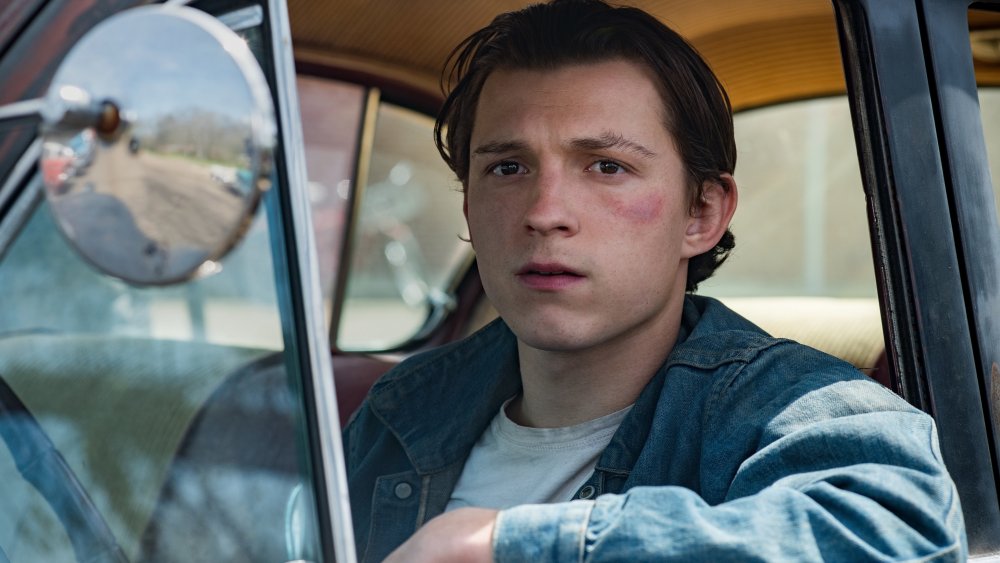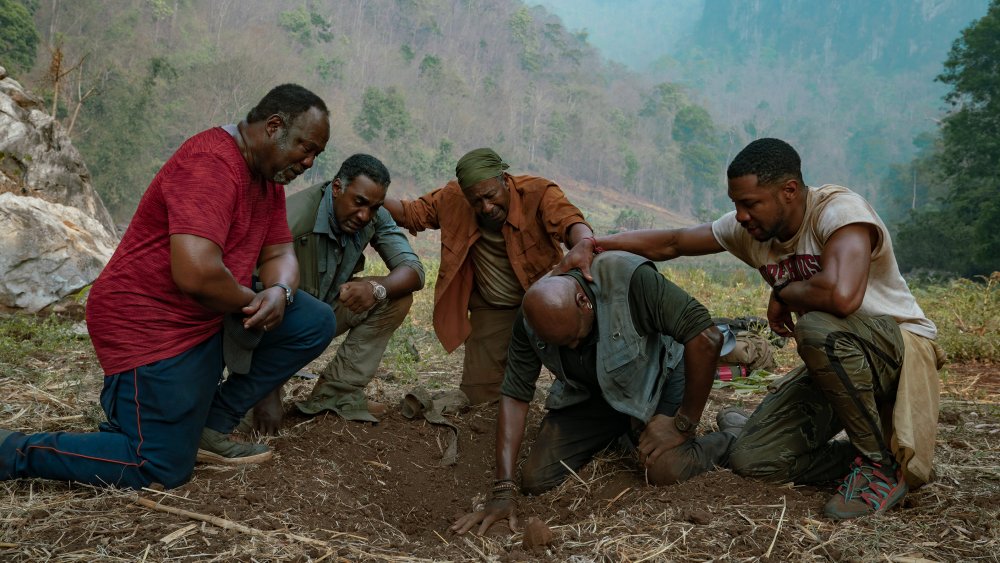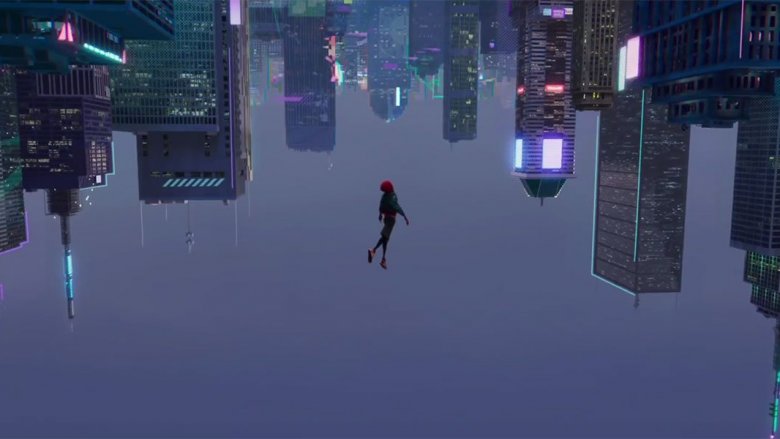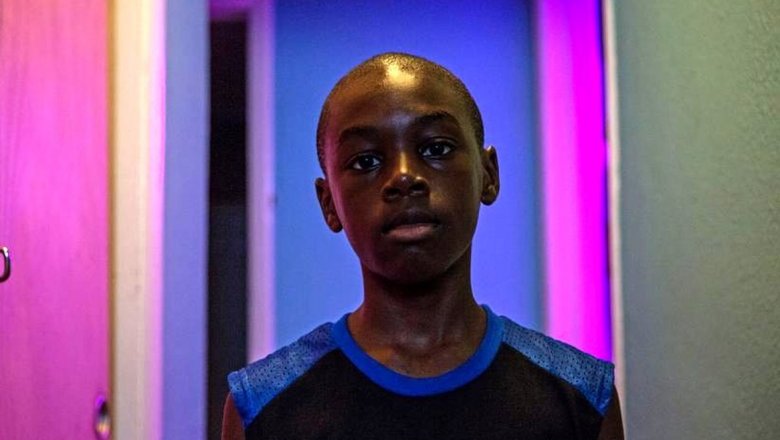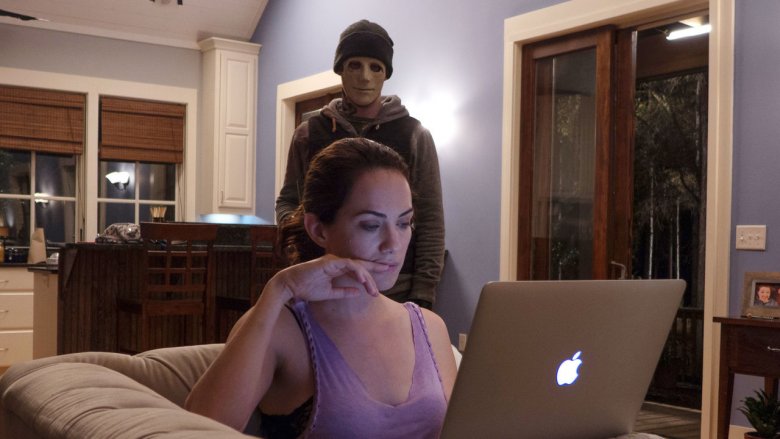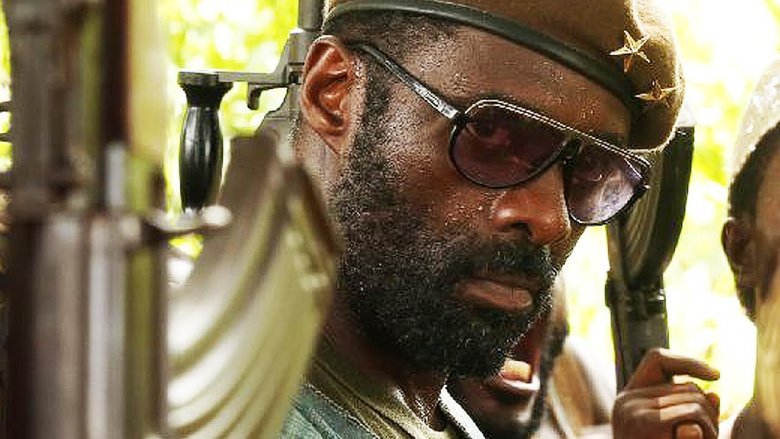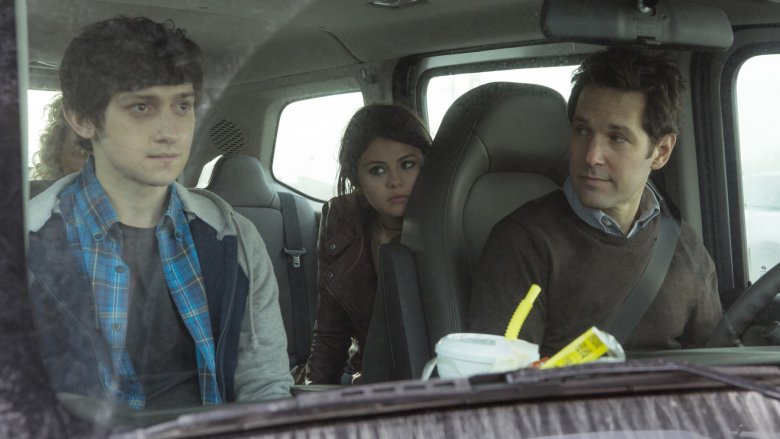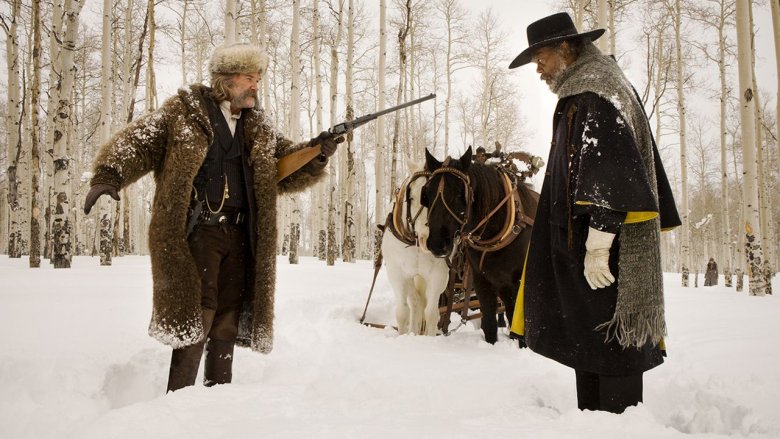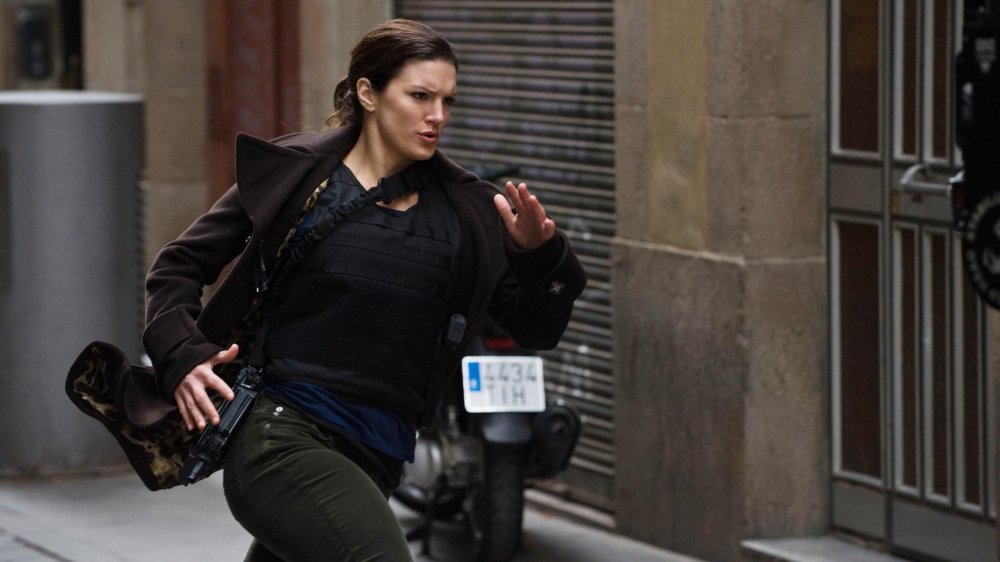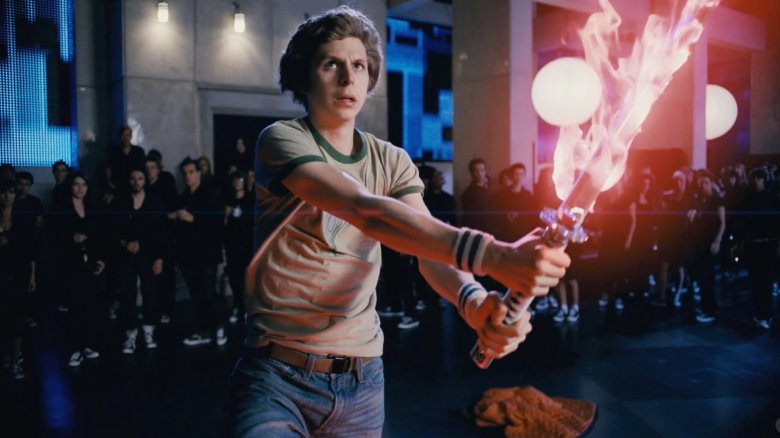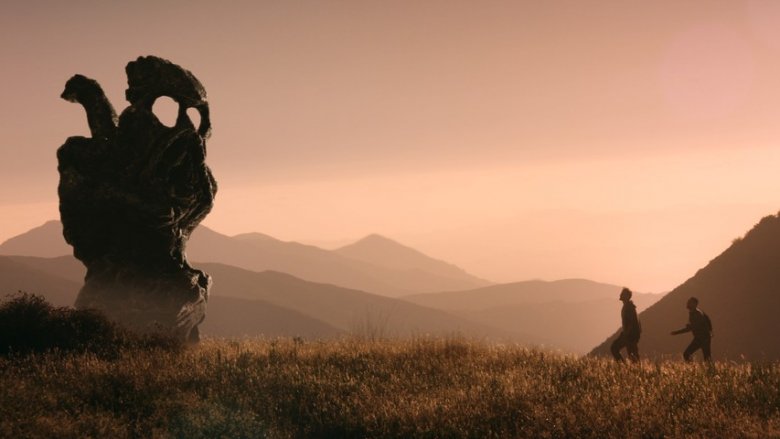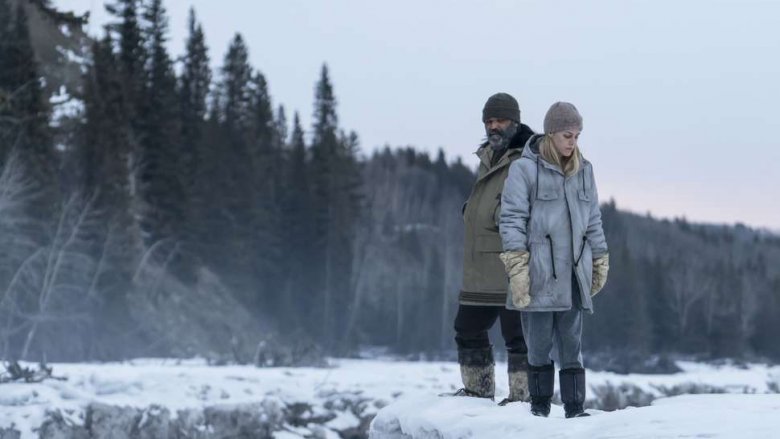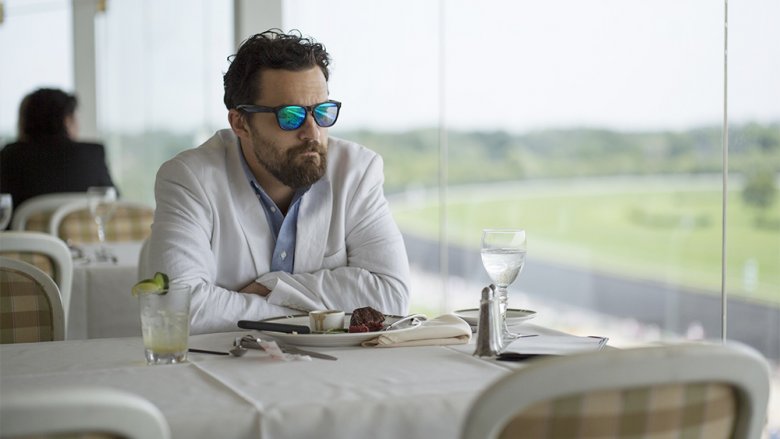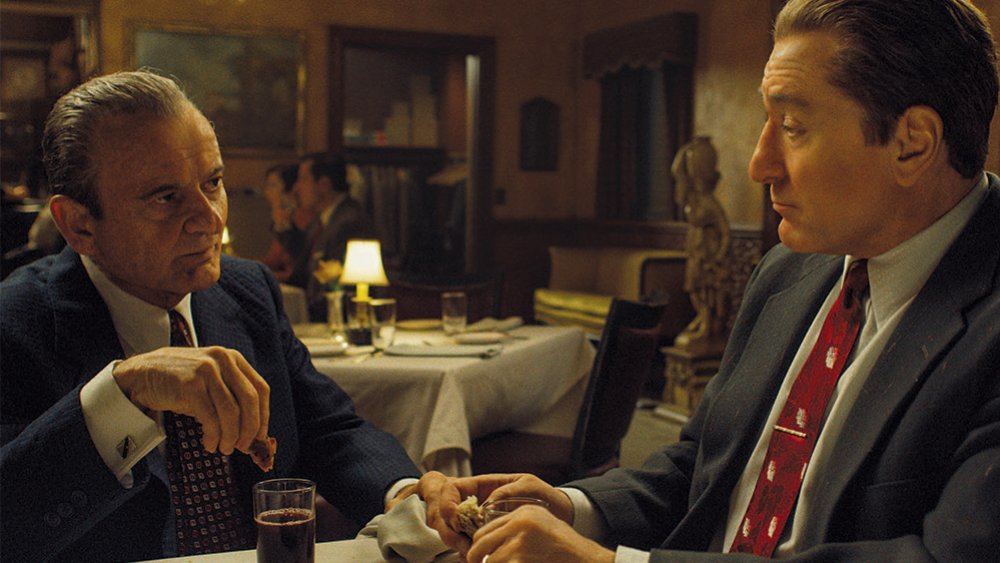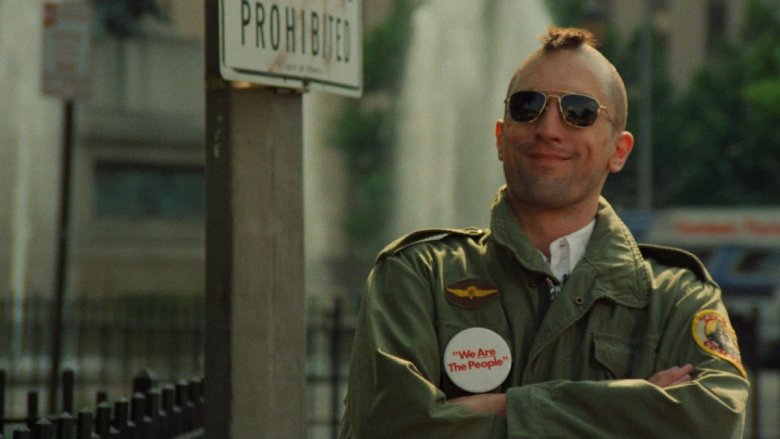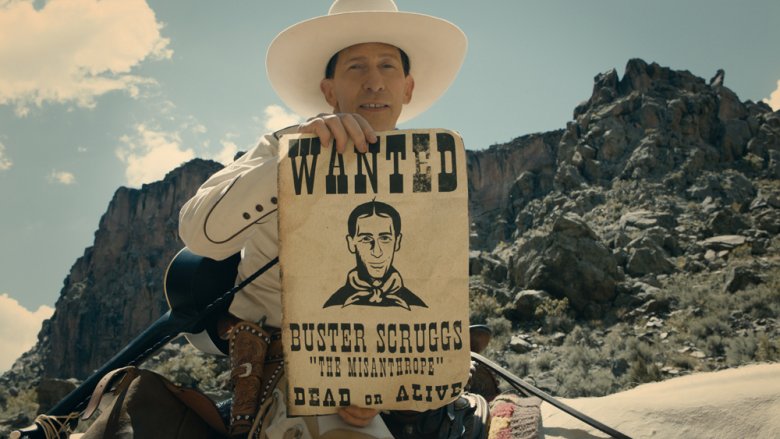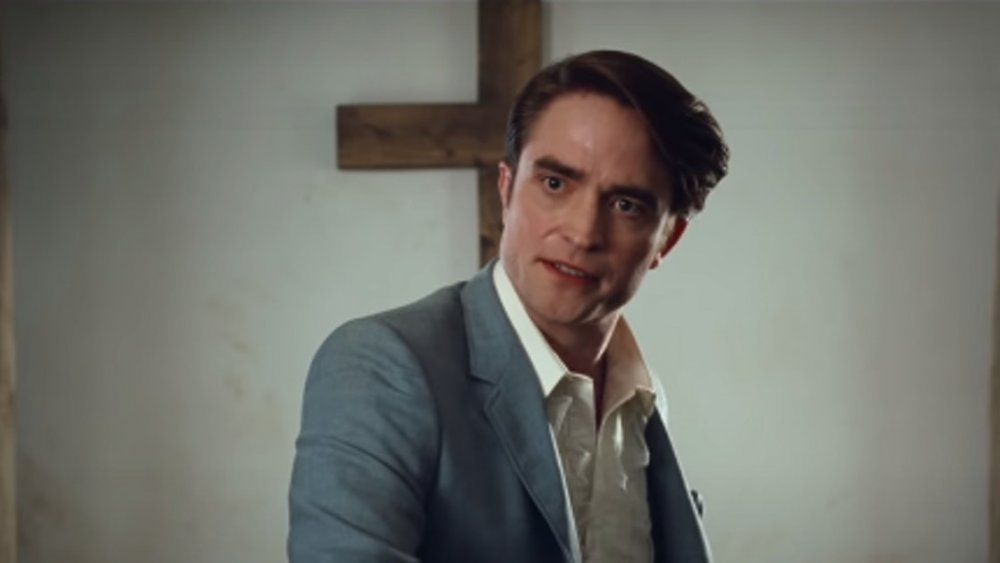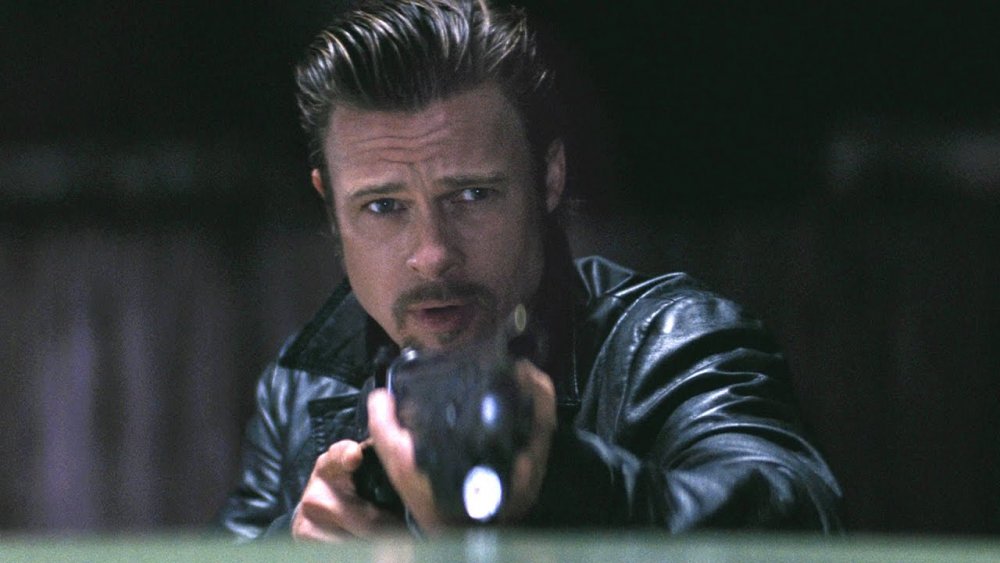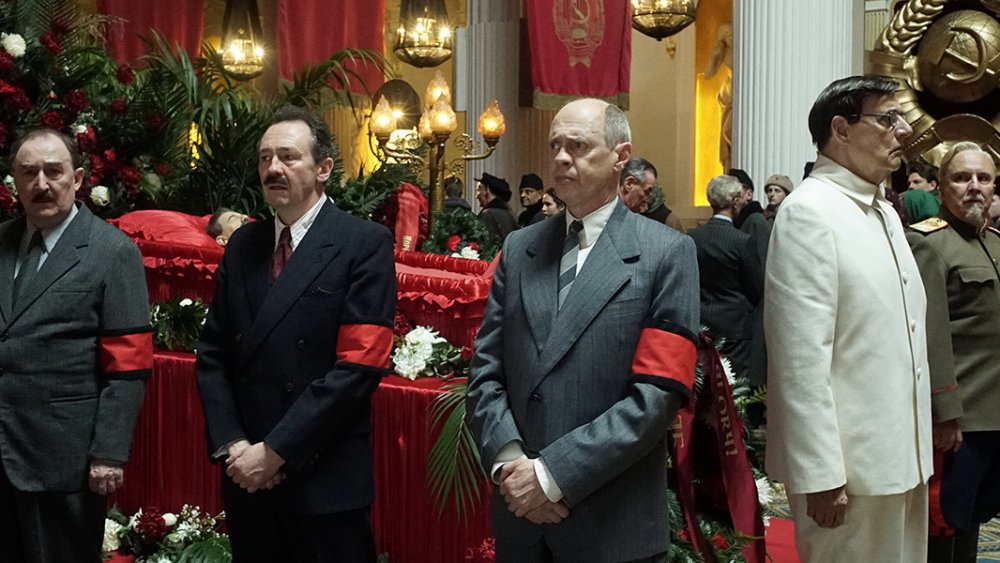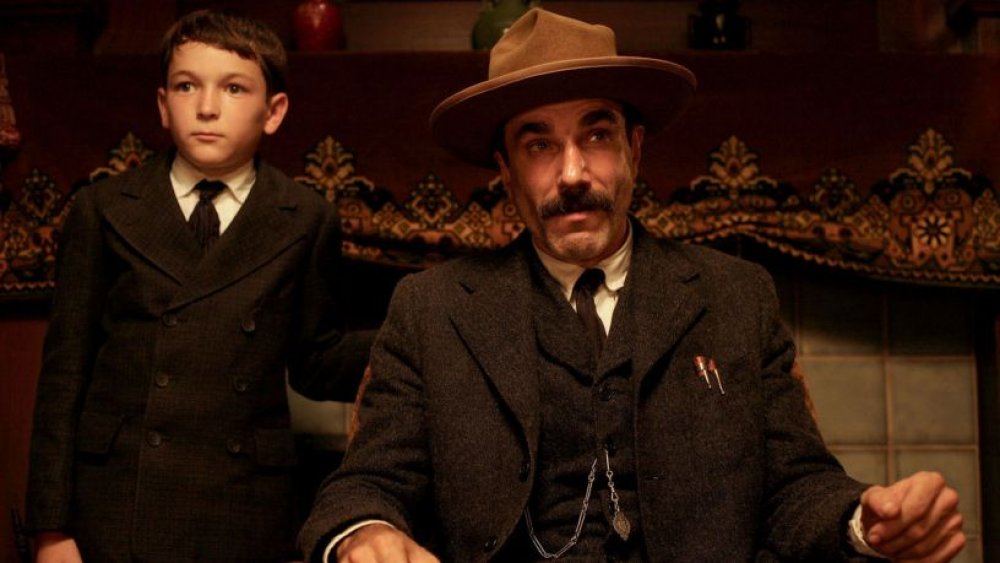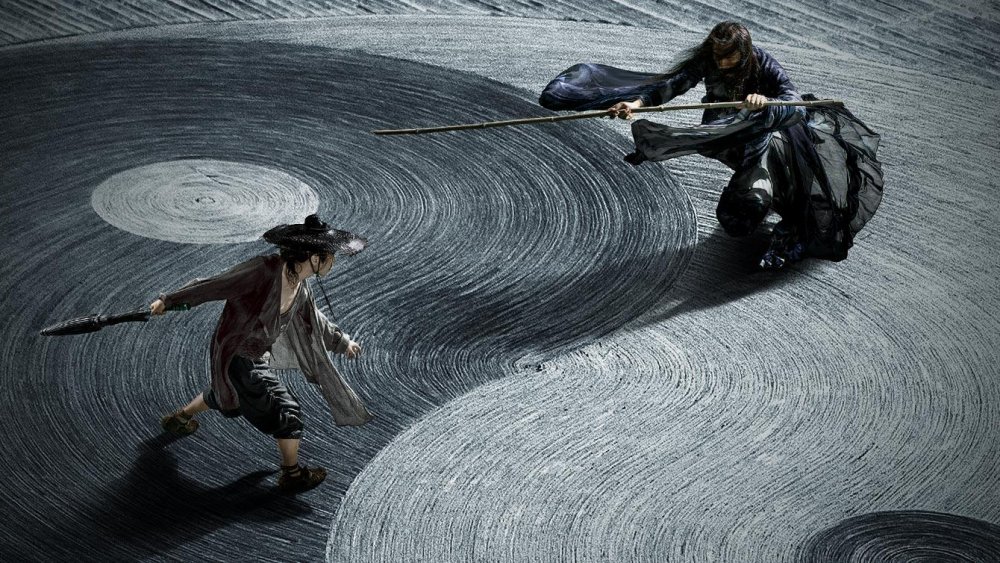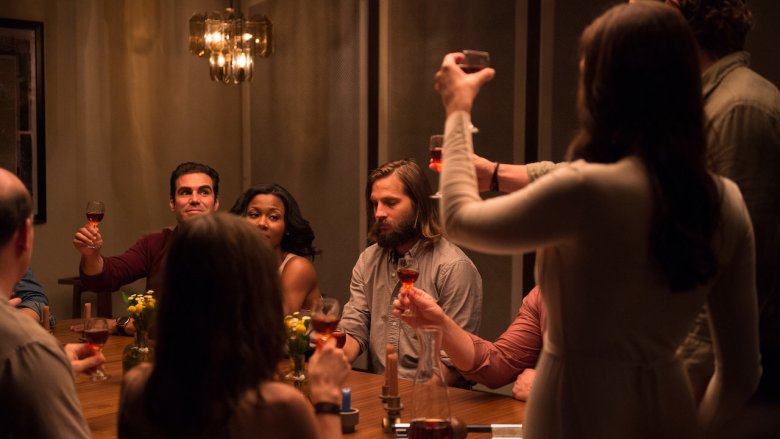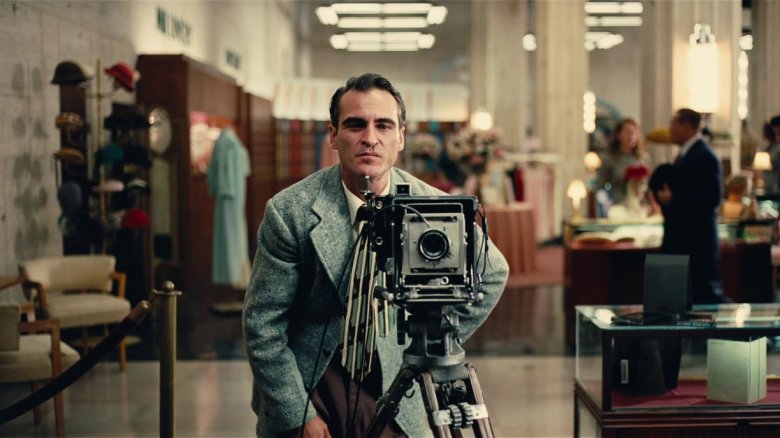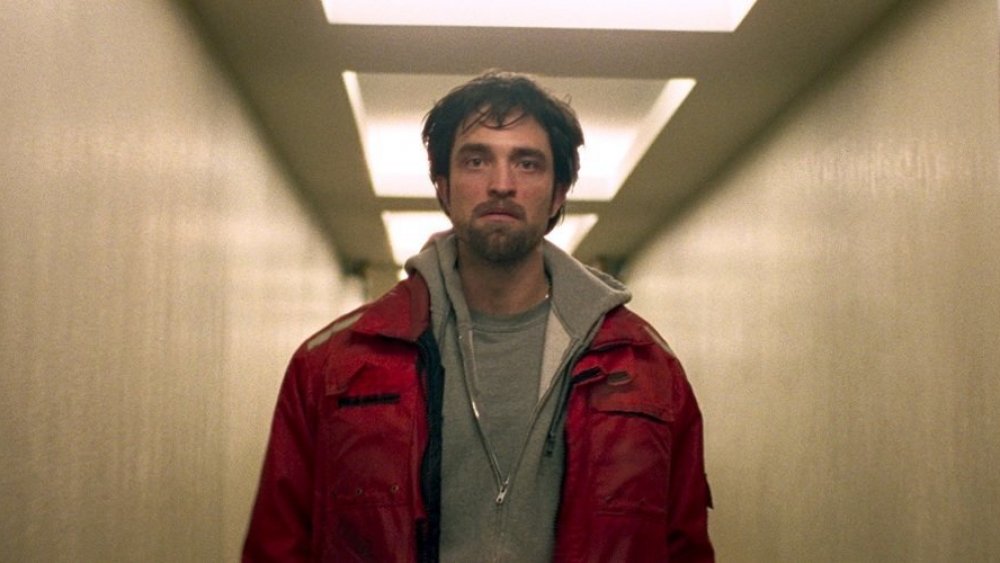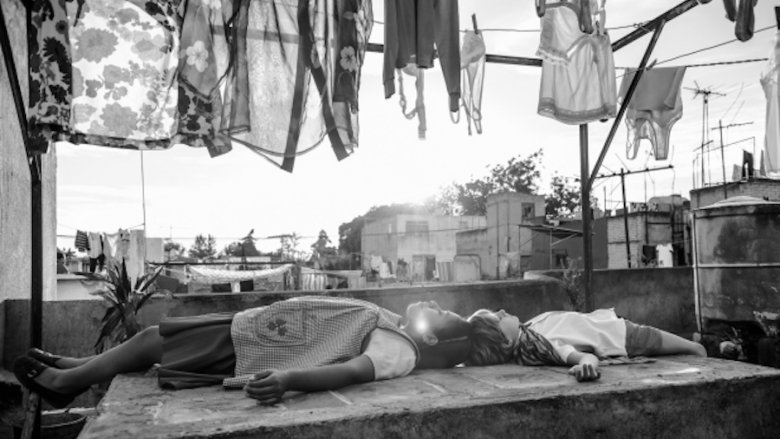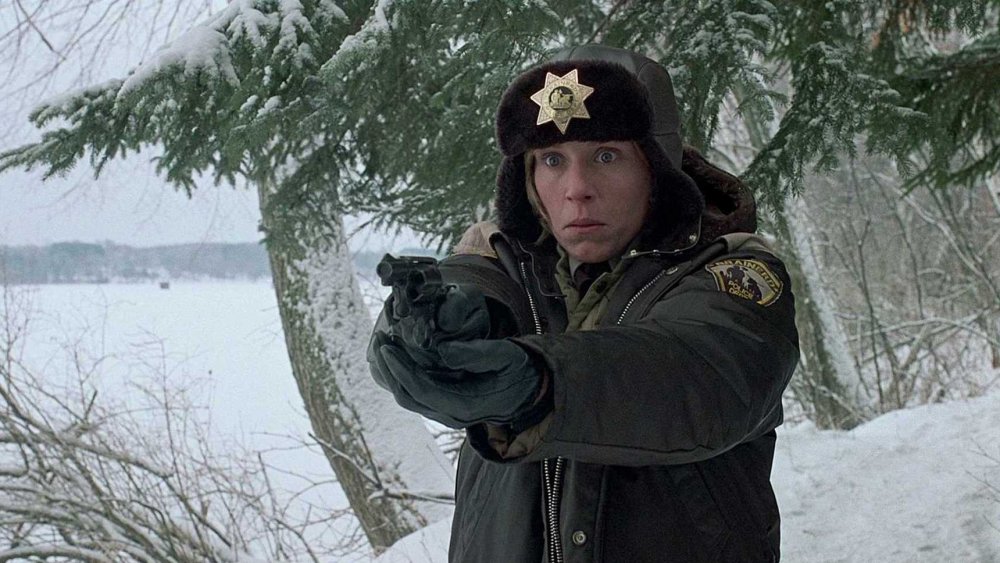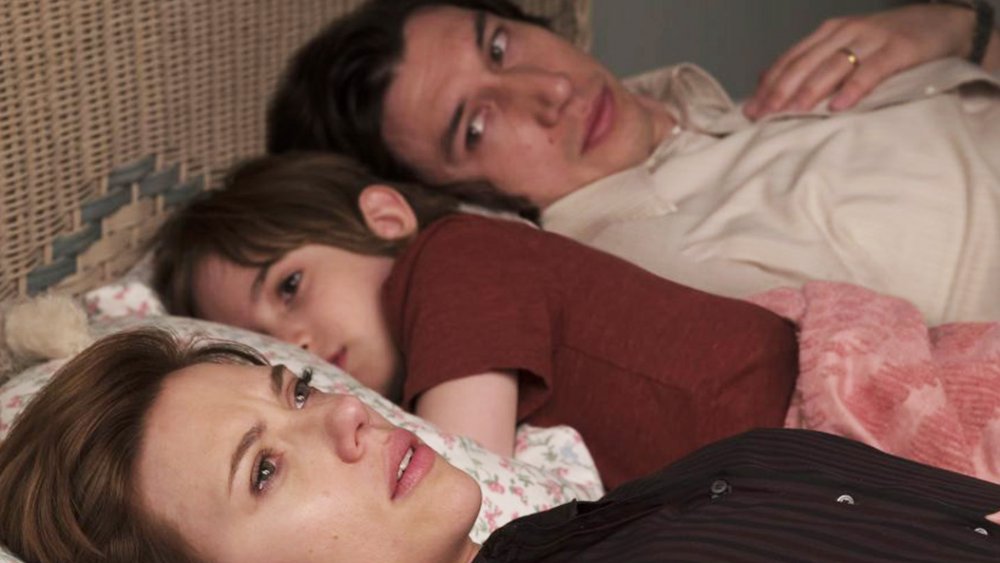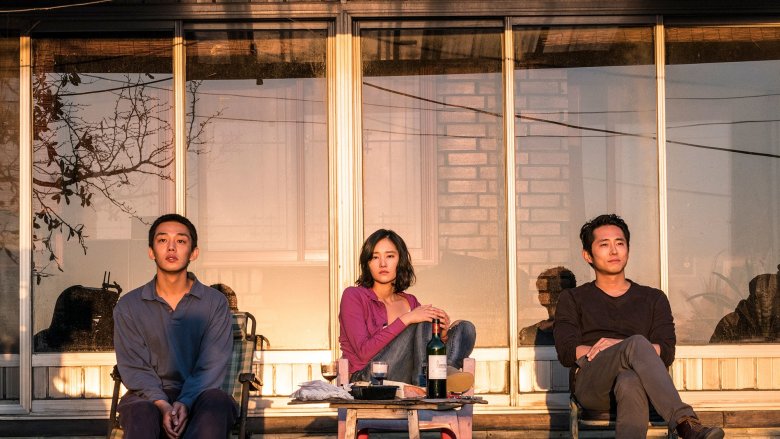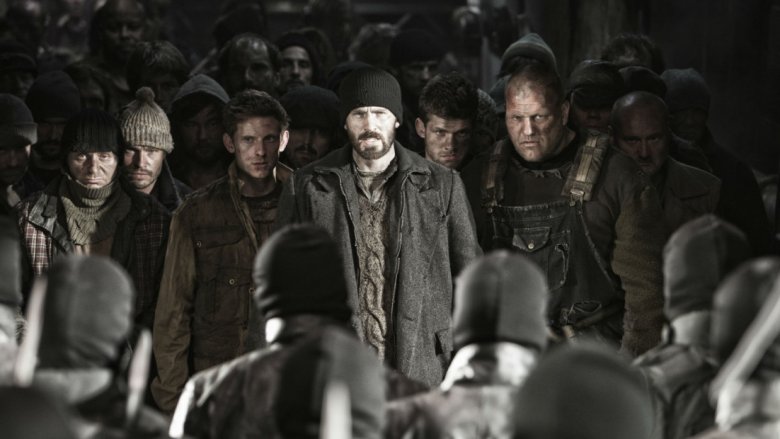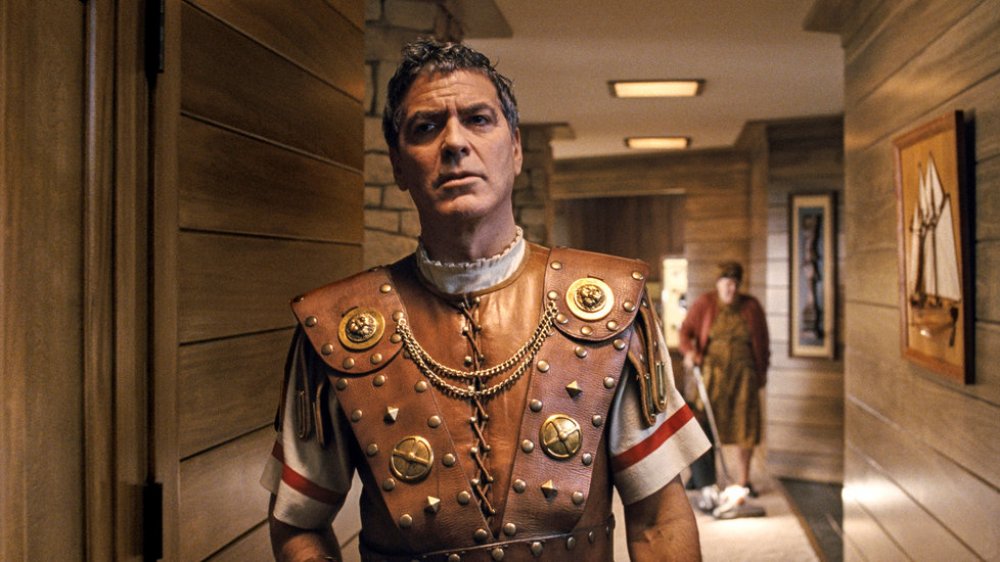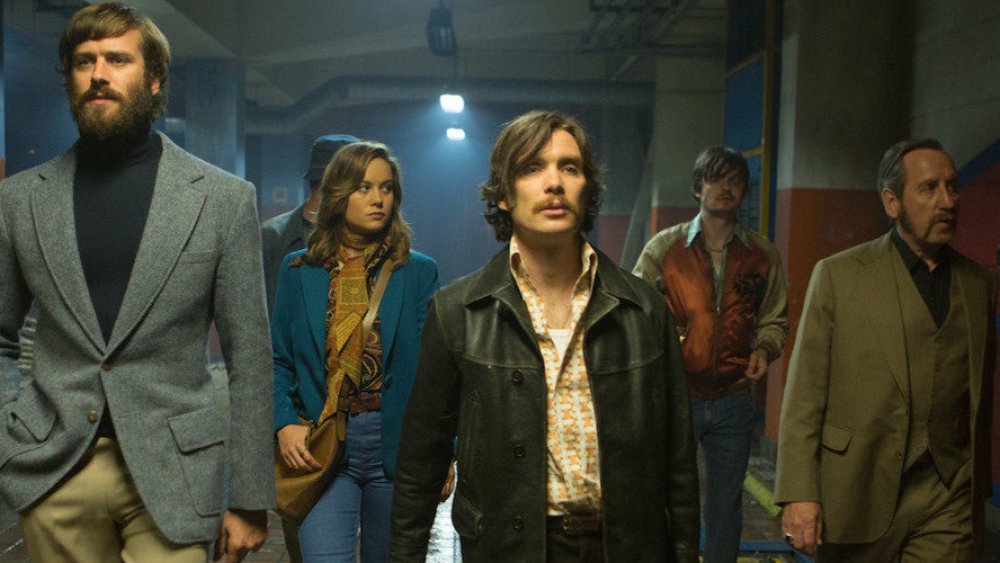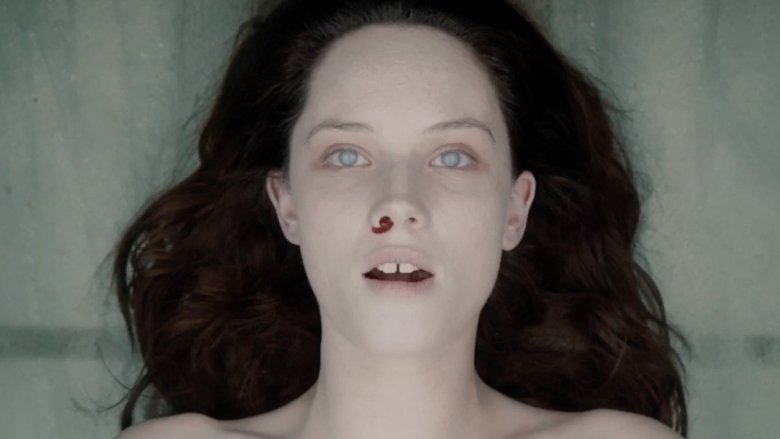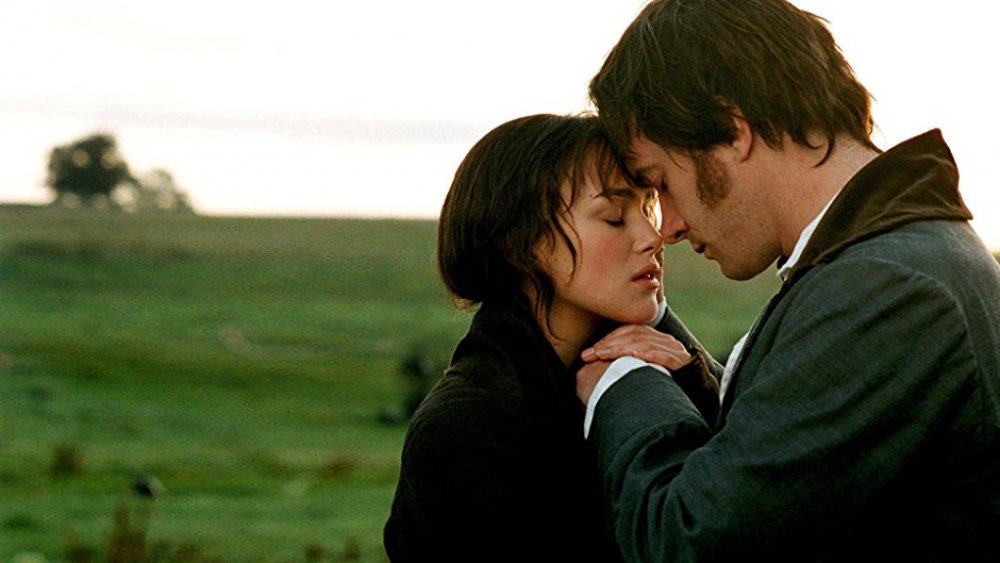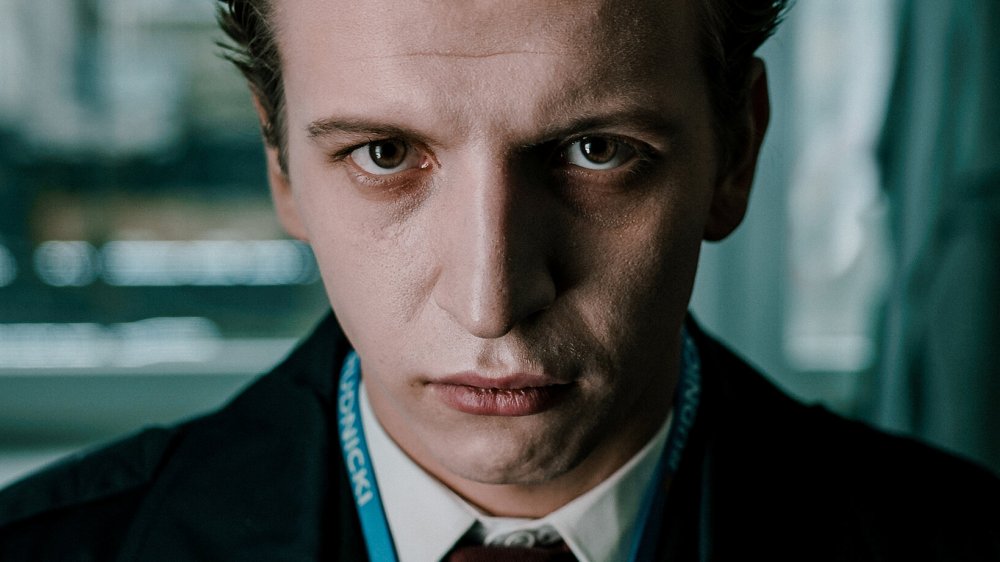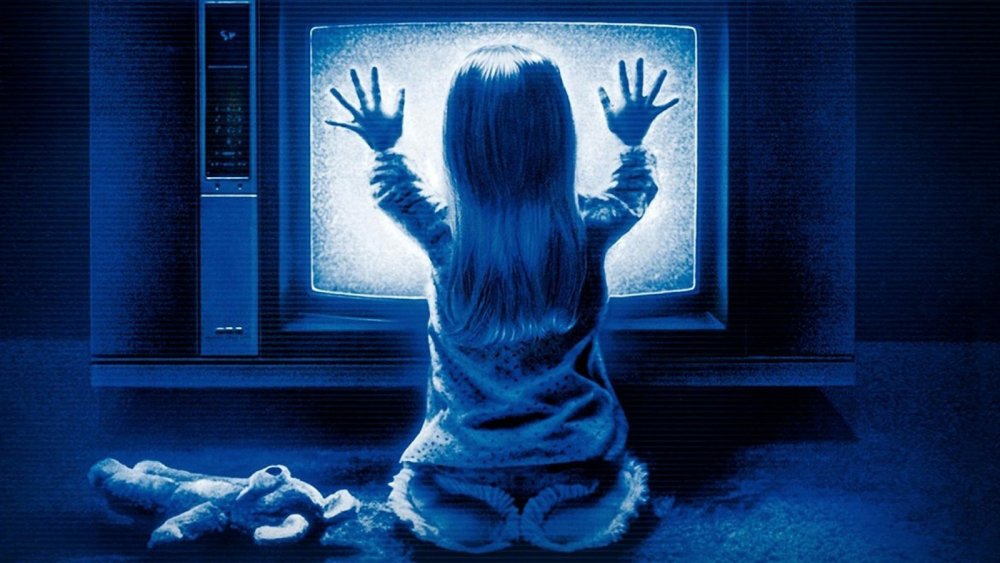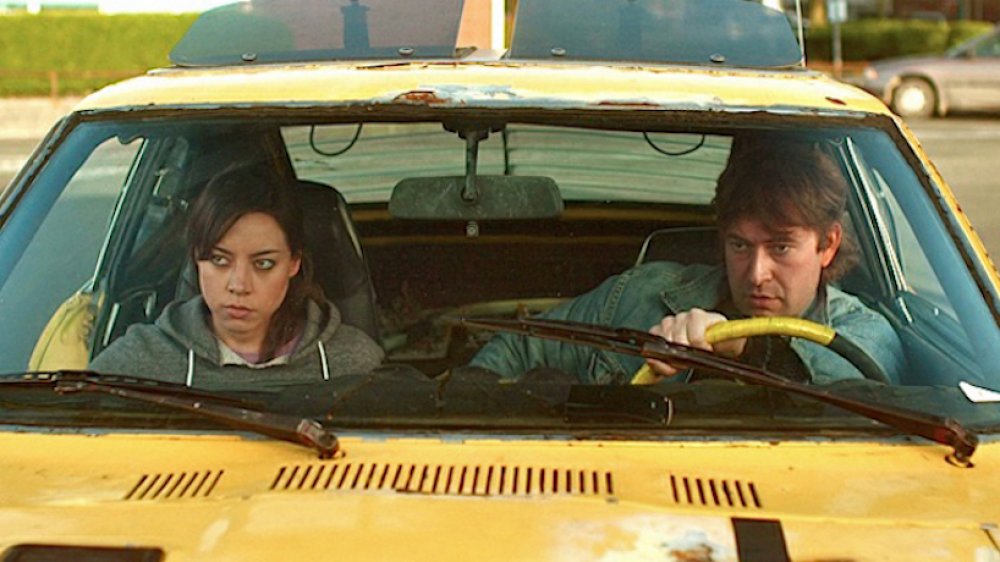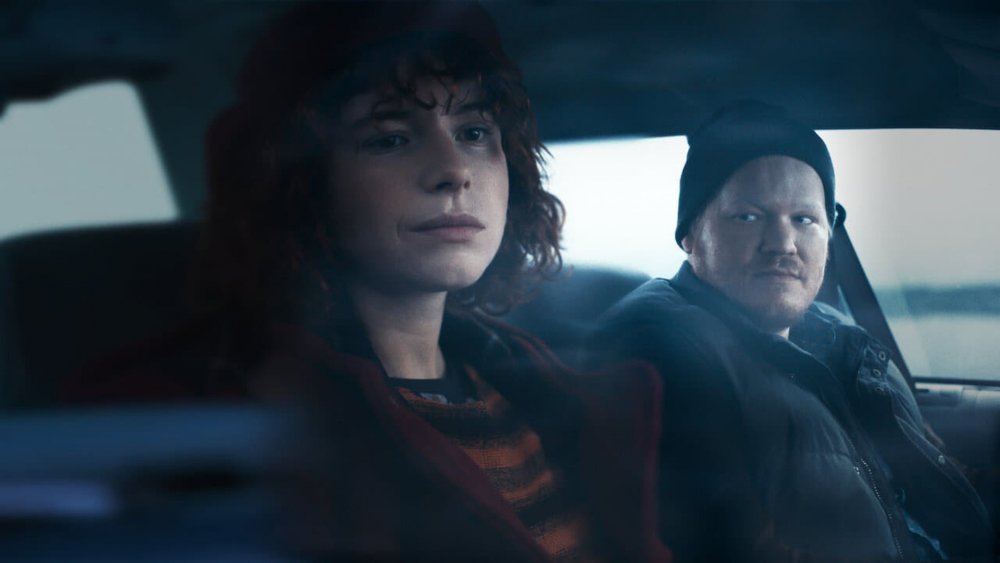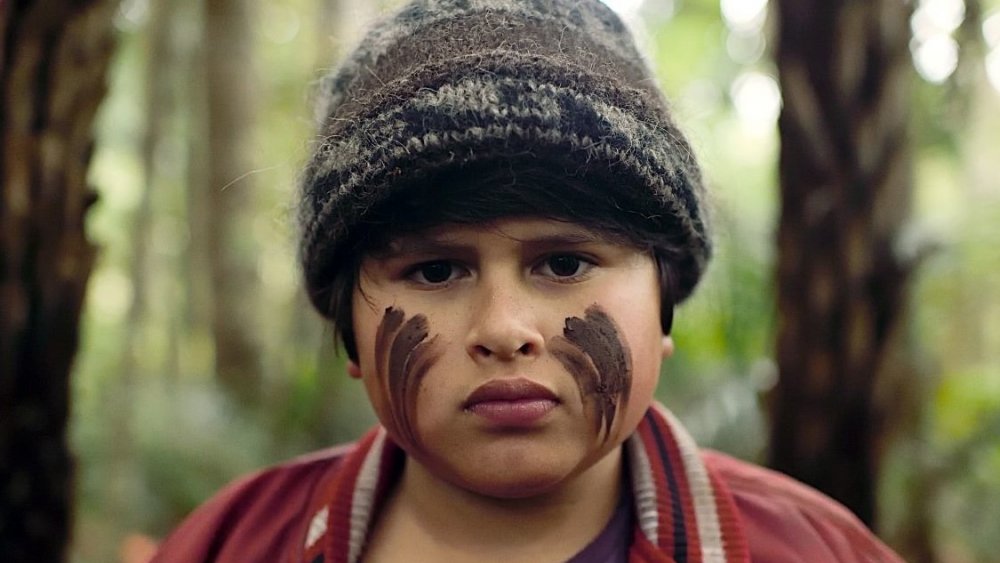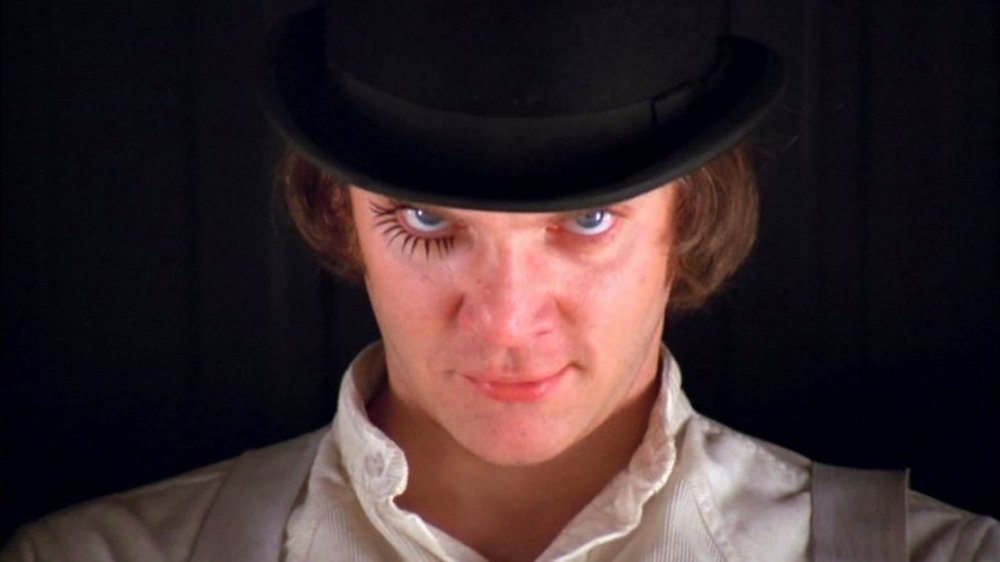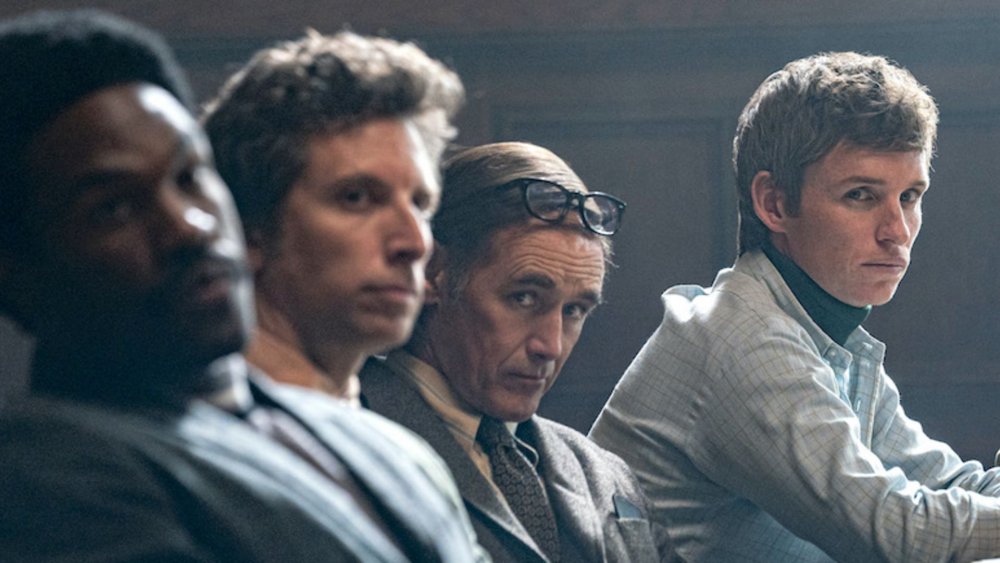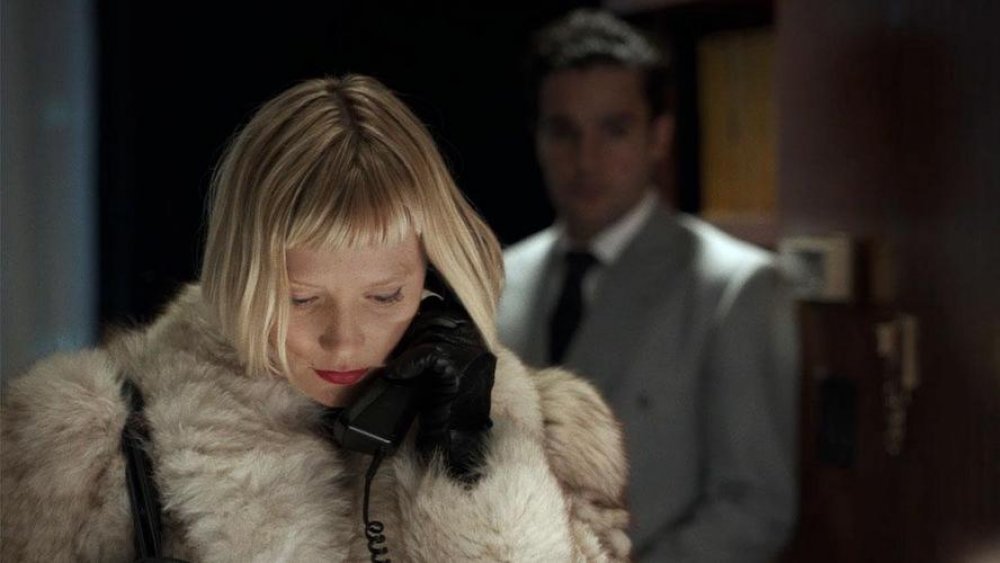The 40 Best Movies On Netflix Right Now
There you are again, sitting on the couch, staring at Netflix. You're wondering whether to take a chance on that indie thing with the obscure cover art or just give in to your darker impulses and watch Face/Off for the sixth time. Life shouldn't have to be this hard, and we're here to make it just a little easier. From incredible underrated gems to timeless favorites that you haven't thought about in years, we've rounded up the best movies on Netflix right now.
Da 5 Bloods
Perhaps more than any other filmmaker in history, Spike Lee continues to elicit a decidedly visceral reaction from moviegoers. That's very much by design, as Lee's films are specifically meant to not just push buttons, but to push viewers as far out of their emotional comfort zones as possible. And whether you love or loathe what Spike Lee brings to cinema (there aren't many in the middle), few can argue the filmmaker's uncompromising cinematic artistry, or his indefatigable flair for biting social drama.
Given the divisive state of the world, it should come as no surprise that Lee is pushing boundaries farther than ever. The director made serious waves with his searing, racially-charged 2018 thriller BlacKkKlansman, and is back in the saddle this year with the fevered Vietnam war drama Da 5 Bloods.
Lee's latest follows a group of Vietnam Vets who find themselves back in country decades after war's end to bring home the remains of their fallen brother — and the cache of gold they'd stored away during combat. Equal parts anti-war drama and action-packed treasure hunt adventure, Da 5 Bloods explores the men in both timelines as they struggle with fighting (and having fought) a war for a country that, even decades later, all but refuses to recognize them. Yes, Da 5 Bloods is as politically and socially motivated as any film Spike Lee has ever made. It's also a daring, devastating document of the Black experience that demands to be seen by as many folks as possible.
Spider-Man: Into the Spider-Verse
After The Amazing Spider-Man 2 effectively killed a franchise as we knew it, it came as a bit of a shock when Sony Pictures announced — after agreeing to share the rights to the web-slinging one with Marvel — they'd be moving forward with a new Spider-Man project. That task seemed all the more daunting when Spider-Man: Homecoming arrived like the John Hughes Spider-flick we didn't know we needed.
To the shock of many, Sony's animated Spider-Man: Into the Spider-Verse was about to prove the universe (nay, multi-verse) was vast enough for alternate Spider-Men, and even big enough for a half a dozen others. Into the Spider-Verse also breathed welcome life into both the rapidly tiring superhero genre and the stagnating medium of feature animation.
That life arrived via street smart teen Miles Morales, who — after inadvertently gaining "spidery" abilities — seeks to replace the recently deceased Spider-Man of his world, only to discover that there are several Spider-Folk spread across multiple dimensions, and that a singular threat is about to disrupt each of their realities. If that synopsis makes your head hurt, please know that matters become much clearer throughout Into the Spider-Verse. Know as well that said story (suffused with equal parts drama, comedy, and soul) unfolds in an electrifying visual style designed to literally bring comic book pages to life. That hearty combination of style and substance makes Into the Spider-Verse unlike any superhero flick you've seen of late.
Moonlight
Over the past decade, A24 Films has transformed itself from the little indie studio that could into a bonafide powerhouse that regularly challenges big-time studios for box office supremacy and awards season glory. They've done so by continuing to release a near-immaculate slate of films that vary from high-minded genre fare (The Witch, Under the Skin, Midsommar, High Life) to complex human dramas and comedies (The Lobster, Lady Bird, Good Time, The Souvenir).
In a "grand scheme" sort of way, 2016 was the year A24 became a legit player in the Hollywood landscape. That was the year the studio released the sophomore film from a then all but unheard of filmmaker by the name of Barry Jenkins. The film was, of course, Jenkins' heartfelt and harrowing coming-of-age drama Moonlight, a film that cleaned up at the box office, blew the critics away, and stormed the Oscars by claiming three Academy Awards, including that infamous Best Picture win.
We're not gonna waste much of your time bestowing more praise on Moonlight here. That's mostly because so much has already been said about the film's dramatic virtue and artistic integrity, there's not much we can add. But just for the record, with its pitch-perfect performances, stylistic mix of hauntingly naturalistic and boldly expressionistic photography, and its awe-inspiring original score, Moonlight is every bit the immaculately executed human drama you've likely heard. If you've yet to experience it for yourself, there's really no time like the present to bask in the lush, lavish glow of Moonlight.
Hush
Shh...hear that? It's the sound of a smart, sexy horror thriller. With a 100% rating on Rotten Tomatoes, 2016's Hush is definitely a movie you can't miss. The premise is simple: Maddie, a deaf/mute author, is staying in her isolated house deep in the Alabama woods when a masked killer appears at her window. While that concept could easily devolve into another run-of-the-mill suspense flick, Hush has no problem upping the thrill factor with deft camera work, unrelenting suspense, and a truly amazing performance from largely unknown actress Kate Siegel. Without saying a word, Siegel portrays Maddie as strong, capable, and intelligent, a breath of fresh air for a female role in a horror movie.
Of course, the sound design in Hush is top-notch. It has to be. Just as he manipulated our perceptions of reality with 2013's Oculus, director Mike Flanagan here uses Maddie's disability to keep the constant threat of danger looming. He never gets gimmicky with his portrayal of Maddie's deafness, giving us exactly as much as we need to feel the fear of never knowing what's behind us. It's not always what you hear, it's what you don't hear.
Beasts Of No Nation
Beasts of No Nation is Netflix's first original feature film (they bought the distribution rights, but didn't actually finance the film) and was released simultaneously in theaters and online. Unfortunately, the resulting controversy—several large theater chains boycotted the film, saying it violated theater exclusivity—overshadowed the film itself. That's a shame, because Beasts is an amazing first choice for Netflix to break into original films.
Starring Idris Elba (Prometheus, Thor) as a ruthless commander and newcomer Abraham Attah as the boy soldier Agu, Beasts of No Nation is powerful, shockingly real, and heartbreaking in its portrayal of the unspeakable horrors of war. It's not an easy film to watch—the pace is relentless, the imagery visceral. But it's a film you should watch, if only for a brief glimpse into the struggle of daily life in war torn Africa.
The country in the film is never defined, although the story could presumably fall into any of the African nations embroiled in turf wars. It was filmed in Ghana, and director Cary Joji Fukunaga spent years researching the conflict in Sierra Leone before finally settling on the 2005 novel as the source material for his film.
The Fundamentals of Caring
Heartwarming, poignant, and injected with more lewd jokes and profanity than a Farrelly Brothers comedy, The Fundamentals of Caring plays like a feel-good summertime Disney flick that got left in an AA meeting for too long, with the end result being an experience more real and human than it ever could have been with a PG-rated script. The movie opens with newly certified caregiver Ben (Paul Rudd) meeting his first patient, a wisecracking teenage shut-in with muscular dystrophy who's driven away all his previous attendants. After a rocky start, they set out on a road trip to see a series of roadside attractions, and along the way they both learn valuable lessons about family and friendship.
Saccharine and mushy, right? It may read that way on paper, but by the third bawdy joke you'll totally change your mind. Give it a shot, and just remember that while it looks like something to stick on for the whole family, it's probably better to wait until the kids go to bed.
The Hateful Eight
Quentin Tarantino's eighth film needs little introduction. In the aftermath of the Civil War, eight people get snowed in at a roadside pitstop, and as the title asserts, none of them are particularly savory characters. There's a lot of talking, a lot of bloodshed, and a lot of Tarantino-ness all around. Perhaps too much, according to some critics. With a 74 percent rating on Rotten Tomatoes, The Hateful Eight is one of Tarantino's worst-reviewed films.
As a Western, sure, The Hateful Eight is no Fistful of Dollars. But as Nerdist very effectively argues, it's not a Western at all—it's a horror movie. For starters, as Tarantino himself explained, it was most directly inspired by John Carpenter's 1982 body horror film The Thing. The pieces are there—the icy landscape, the claustrophobic setting, people trapped in close quarters by a raging blizzard, and the undercurrent of someone in the group who isn't what they seem. Also, Kurt Russell. On top of that, the musical score includes Ennio Morricone tracks from The Exorcist II and The Thing, deliberately adding to the sense that monsters are lurking, even if they turn out to be human after all.
Now Netflix viewers also have the added option of watching The Hateful Eight as an extended miniseries — broken into four episodes, with at least 25 minutes of new footage spliced in. "Some sequences are more similar than others compared to the film, but it has a different feeling," said Tarantino. "It has a different feeling that I actually really like a lot."
Haywire
Back in 2003, Quentin Tarantino's jaw-dropping genre stew Kill Bill Vol. 1 essentially set the bar for what female-fronted action movies could be. It did so by conjuring a tough-as-nails heroine with a heart of gold who could literally beat down or out-wit even the toughest S.O.B.'s among planet Earth's criminal underworld. En route to delivering an enigmatic action film fantasia, Tarantino almost single-handedly authored the blueprint for the current wave of movies putting ass-kicking ladies front and center.
Though produced on a much smaller scale, Steven Soderbergh's star-studded 2011 actioner Haywire took the Kill Bill blueprint (i.e. a female assassin betrayed by her bosses) and ran with it, transporting it to the world of international espionage and forging a fruitful, propulsive narrative every bit as smart, fun, and action-packed as Tarantino's opus.
We know, Steven Soderbergh is hardly a name one would typically equate with the action movie set. But the infamously dexterous filmmaker executed his first foray in to full-on action cinema with undeniable grace, utilizing a whip-smart screenplay from Lem Dobbs (see also Soderbergh's masterful The Limey), and a stoically tenacious performance from MMA fighter-turned-actor Gina Carano (see also The Mandalorian on Disney+) to deliver a full-throttle, '90s-tinged action flick with style and energy to burn. The final product very easily could've turned into the sort of female James Bond type franchise the film world has been clamoring for of late, had anybody actually seen it in theaters.
Scott Pilgrim vs. The World
In the pantheon of video game movies, there have been far more misses than hits. There was a time when the same could've been said about graphic novel adaptations as well. That Scott Pilgrim vs. The World arrived in theaters as both a video game flick and a graphic novel adaptation was reason enough to get excited about it in 2010. That the film was also directed by Edgar Wright — then a burgeoning cult icon hot off the success of Shaun of the Dead and Hot Fuzz — was reason to be downright impatient for the film.
Wright delivered the goods with Pilgrim, crafting an action-packed, genre-busting romantic comedy with enough razor-sharp wit and eight-bit charm to claim success on both the video game and adaptation fronts. It also featured a hip young cast including Michael Cera, Mary Elizabeth WInstead, Kieran Culkin, Anna Kendrick, Aubrey Plaza, and Jason Schwartzman, not to mention scene-stealing appearances from future MCU stars Chris Evans and Brie Larson. With that pedigree (and reviews to match), Scott Pilgrim vs. The World seemed destined for box office glory. That didn't happen. In fact, the film was an outright bomb that seemed doomed to claim little more than "cult classic" status. Luckily, Wright's hipster opus found second life on video, and is now counted amongst the director's best work. If you've been sleeping on that fact, now's the time to get into the game.
The Endless
In 2015, Justin Benson and Aaron Moorhead teamed up to deliver a wildly innovative, Lovecraftian romance about a young man falling in love with a mysterious woman while traveling in Europe. It was called Spring, and despite scoring well with critics — who lauded its genre-bending ambition — not many people actually saw it. Those who did likely discovered Spring on Netflix, where the film eventually garnered its well-deserved "cult classic" status.
Fans of that film were quick to hail Benson and Moorhead as filmmakers to watch, anxiously awaiting the duo's next innovative offering. It arrived in The Endless, another critically acclaimed, mind-bending genre mashup that finds Benson and Moorhead following a similarly grounded, slow-burning dramatic approach to horror/sci-fi tropes while expanding their cinematic palette in ways their genre peers have yet to dare.
This go-round, Benson and Moorhead spin a complex tale of two brothers who make the fateful decision to revisit the "alien death cult" they managed to escape in their youth. That's all the synopsis you're gonna get from us, because part of The Endless' narrative magic is uncovering the film's unnerving existential mysteries for yourself. Just know that whatever you think you know as the film untangles its intricately woven web, you're probably wrong. That's a good thing, by the way — and further proof that The Endless is almost certain to cement Benson and Moorhead as two of the most daring genre/cult filmmakers of this generation.
Hold the Dark
Over the past decade, Jeremy Saulnier has gone from the little-known writer/director behind the kooky, no-budget cult favorite Murder Party into a bona fide indie auteur. One whose penchant for tightly wound, blood-soaked narratives about normal people in impossibly tense scenarios led to the formidable one-two punch of 2013's caustic revenge tale Blue Ruin and 2016's gory, punk-tinged drama Green Room.
Those films worked because Saulnier had all but unfettered creative control over each. Saulnier found even more freedom with Netflix when he set his sights on the unforgiving Alaskan wilderness to shoot Hold the Dark, and it's a big reason his latest opus is one of his best offerings to date.
Adapted from William Giraldi's novel of the same name, Hold the Dark follows a tracker/wilderness writer (Jeffrey Wright) called to an isolated Alaskan village to hunt down a pack of wolves who may have killed a local boy — and he quickly finds nothing is quite what it seems in the eerily secretive community. We wouldn't dream of spoiling those secrets; just know that, as a mystery, Hold the Dark unfolds under an icy cloud of ambiguity, but those who stick with Saulnier's harrowing journey will find a bold, fiery beast of a tale about loss, regret, lust, and vengeance that functions simultaneously as existential mystery, survival drama, and straight up slasher. Yes, that combination is as confounding and enthralling as it sounds, and it's why Hold the Dark is an absolute must-see.
Win It All
Some filmmakers revel in the bombast of Hollywood, but over the years, indie auteur Joe Swanberg has eschewed those stupefying reveries in service of crafting incisive micro-budget features of all genres, winning a fiercely loyal fanbase along the way. Those fans helped make Swanberg's work — Drinking Buddies, Happy Christmas, and Digging for Fire — surprising hits on Netflix. It seemed natural, then, that the streaming giant would invest in Swanberg's vision. They did so by producing his mostly marvelous anthology series Easy, then went all in by greenlighting Swanberg's latest feature, Win It All.
Netflix's filmmaker-friendly approach proved an excellent match for Swanberg's fiercely independent style. Win It All finds the director re-teaming with Jake Johnson to deliver the tragi-hilarious tale of Eddie Garrett, a charismatic Chicagoan with a crippling gambling addiction. Eddie's unstable existence is completely upended when a pal entrusts him with a duffel bag full of cash before serving a lengthy prison sentence.
That's the last thing you'd want to hand over to a gambling addict, of course, and what follows is a cringe-worthy, if often hilarious, spiral into addiction madness that plays out about the way you'd think (i.e. the money is lost and must be won back). Like the best of Swanberg's films, he tempers the madness by focusing the film's narrative on the human that drives it. In turn, Win It All proves itself insightful, irreverent, romantic, and laugh-out-loud funny.
The Irishman
Few names in the history of cinema inspire as much respect and awe as Martin Scorsese. Now well into the fifth decade of his all but unimpeachable career, Scorsese has somehow managed to maintain his fiercely independent vision while cranking out more genuine cinematic masterpieces than pretty much any filmmaker who's ever lived. The Irishman is Scorsese's 26th feature film, and it's certain to go down as one of his late-game masterworks.
At three and a half hours, The Irishman is also the longest film of Scorsese's career. Shockingly, it seems the film almost never happened, with Scorsese relenting that — even with iconic titles like Taxi Driver, Raging Bull, and Goodfellas to their credit — no studio was interested in properly financing a new Scorsese film with Robert De Niro in the lead. Luckily, Netflix jumped at the chance to add the latest Martin Scorsese picture to their in-house catalog.
Anchored by a powerhouse turn from De Niro, with equally compelling work from Harvey Keitel, Joe Pesci, and Scorsese first-timer Al Pacino, The Irishman finds the legendary director in surprisingly subtle form, delivering a melancholic, decades-spanning slow-burner of a gangster flick culled from a real-life story about ruthless mobsters, scheming teamsters, fractured families, and the corrosive legacy of violence and betrayal that ultimately undid a sprawling underground empire. Yes, The Irishman may look like a typical Martin Scorsese gangster flick. We can assure you it's anything but, and proves that even 50 years into his career, Scorsese still has a few new tricks up his cinematic sleeve.
Taxi Driver
With over four decades of movies and accolades behind him, Martin Scorsese might easily lay claim to being the most lauded filmmaker that's ever lived, if not also one of the most influential. Back in 1976, however, Scorsese was still a brash young director who — on the strength of the gritty, dramatic one-two punch of Mean Streets and Alice Doesn't Live Here Anymore — had more than earned the title of "up-and-comer." Taxi Driver is the film that formally announced Scorsese's arrival, positing the director as both a radical cinematic stylist and the voice of cinema to come.
Just FYI, Taxi Driver also announced Robert De Niro as a once-in-a-generation acting talent, saw a baby-faced Jodie Foster step firmly into the spotlight as a tragic teenage prostitute, and posited now legendary scribe Paul Schrader as one of the premiere writers in film. Oh, and it also proved a hit with critics, scored respectable numbers at the box office, and earned a handful of Oscar nominations to boot.
Today, Taxi Driver is considered one of the most important films ever produced. And yes, Scorsese's caustic tale of an unstable veteran with violent tendencies traversing the filthy, morally bankrupt streets of New York as the titular motorist is more than worthy of that praise. Its politically charged narrative feels as vital in today's climate as it likely did upon release. But you probably already know that to be true, right? Because you have seen Taxi Driver, right?
The Ballad of Buster Scruggs
Since breaking into Hollywood with 1984's remarkably assured debut Blood Simple, the Coen brothers (a.k.a. Joel and Ethan) have gone on to produce a near-unimpeachable body of work that's found them working as easily in slapsticky farce and romantic comedy as in the crime, western, and musical genres. Whatever story they choose to tell, you can be certain of one thing — the Coens are always going to push to do something they haven't done before. Though it features all the staples of a Coens movie (i.e. brutal/hilarious outbursts of violence, schticky genre setups, crackling dialogue, and stark human drama), their Western anthology The Ballad of Buster Scruggs finds the Coens pushing themselves farther than ever.
Of course, the thing that most obviously sets The Ballad of Buster Scruggs apart from the rest of their films is that it is, in fact, an anthology (comprised of six short tales of the wild west) and not a single, straightforward narrative. Those six tales are thrilling, and hilarious, and frequently downright heartbreaking. They feature stellar work from an all-star cast including Tim Blake Nelson, Zoe Kazan, James Franco, Tom Waits, and Liam Neeson. And they're each fueled by the sort of mirthful madness only Joel and Ethan Coen can conjure. Coupled with Bruno Delbonnel's jaw-dropping digital cinematography and pitch-perfect Western themes from composer Carter Burwell, The Ballad of Buster Scruggs is easily one of the best movies Netflix has ever produced, if not one of 2018's best films.
The Devil All The Time
If there's one thing Netflix has proven since pivoting to original content, it's that they're wholly unafraid to take risks. And they certainly took one when they tapped indie wunderkind Antonio Campos (Afterschool, Simon Killer) to helm the pitch-black period chiller The Devil All the Time. Luckily, Campos responded by delivering a soul-crushing, Southern-fried pot-boiler with a heart as black as night.
He assembled one of the all-time great ensemble casts to pull it off too, with Robert Pattinson, Tom Holland, Mia Wasikowska, Jason Clarke, Sebastian Stan, Jason Clarke, Bill Skarsgård, and more turning up to play a part in what can only be described as a flawed but utterly fascinating experiment in Southern gothic exploitation.
That drama unfolds through intricately woven narratives, and with the slow-rolling pathos of a classic country song. It also finds everyone involved in top form, servicing a bruising narrative whose primary thematic terrain covers death, grief, the emptiness of religion, the hopelessness of salvation, and still more death.
Yes, The Devil All the Time is a grim little movie. And yes, it's often hard to watch. But it's also difficult to look away from, largely due to the strength of the acting. And while there's enough story here to satisfy (even merit) a multi-episode mini-series, Campos and Co. have fashioned The Devil All the Time into a beast of a film whose black heart is best explored in the darkest of rooms, and in utter solitude.
Killing Them Softly
Nearly a decade has passed since Andrew Dominik released the followup to his flawless anti-Western The Assassination of Jesse James by the Coward Robert Ford, and we're betting most of you probably haven't seen it. Yes, you should rectify that, because Dominik's overtly political powder keg of a crime flick Killing Them Softly is every bit as impressive. In some ways, Killing Them Softly is actually the better film.
Make no mistake, Killing Them Softly is a spectacular slice of socially-conscious crime cinema. Set amid the darkness of 2008's housing collapse, the film follows a pair of low-level criminals (Scoot McNairy and Ben Mendelsohn) who rip off a mob-protected card game. That act leads to the hiring of a stoic hitman (played with unflappable cool by Brad Pitt) to restore order in the local criminal underworld. Upon his arrival, Killing Them Softly becomes a glib, supremely stylish, unabashedly opinionated little crime drama that's as much a down-and-dirty gangster movie as a scathing indictment of American socioeconomic structures. It also features a bravura supporting turn from the late, great James Gandolfini, and one of the all-time greatest final lines in movie history. Don't believe us? It's high time to find out for yourself.
The Death of Stalin
If you've been to the movies in the past decade, you're well aware there's been a fairly noticeable comedy drought at the cineplex. In fact, prior to the release of Armando Iannucci's venomous, laugh-out-loud historical dramedy The Death of Stalin, we really couldn't recall the last time we'd seen a genuinely great comedy film. To be clear, The Death of Stalin is inarguably a great comedy — one that continues to eclipse all comedic comers even two years after it left theaters in terms of savage wit, outlandish language, and socio-political savvy.
Of course, if you're among the viewers who stumbled blindly into Iannuci's latest pitch-perfect political farce (see also 2009's In The Loop, and HBO's Veep) you already know it's the sort of rapid fire laugh riot that all but demands repeat viewings because you simply cannot take in every immaculately written one-liner, calculatingly cock-eyed performance, or scrupulously executed set piece in a single viewing. We'd even posit you couldn't catch them all in three or four screenings. The good news is you'll find something different to love and laugh hysterically at no matter how many times you watch The Death of Stalin. And with each new viewing, the film's acerbic, utterly absorbing, politically charged narrative (fueled by shrewdly astute work from a very English-speaking ensemble cast including Steve Buscemi, Jeffrey Tambor, Jason Isaacs, and Andrea Riseboroughh) carries as much dramatic weight as it does on the first.
There Will Be Blood
Few actors have cast as long a shadow over their craft as Daniel Day-Lewis. No, that's not because the actor stands a full 6'2" in stature. Rather, it's due to Day-Lewis' fierce dedication to his method-acting modus operandi, and uncanny ability to transform himself body and soul for each new role. Such ability has led Day-Lewis into elite awards season company, standing alongside screen icons Katherine Hepburn, Meryl Streep, Jack Nicholson, Ingrid Bergman, and Walter Brennan as the only actors in history to win three or more Academy Award statues.
Day-Lewis claimed the second of his three Best Actor awards for his towering work as a ruthless, near vampiric turn-of-the-century oil man who refuses to stand idly in anyone's shadow. And trust us when we say there's not a shadow on Earth big enough to shade Day-Lewis' Daniel Plainview. Frankly, merely calling the actor's performance in There Will Be Blood "towering" seems an egregious understatement, because Paul Thomas Anderson's film is utterly consumed by Day-Lewis' presence.
The beloved actor's near-mythic work in There Will Be Blood is so utterly transfixing it's almost easy to lose sight of Anderson's own mastery throughout. Still, even as the preternaturally gifted filmmaker willfully puts his actor's scene-devouring turn front and center, he wisely uses it to bolster what's essentially an epic chamber drama about capitalism run amok that's as audaciously ambitious as it is inherently insightful. One that may well feature career work from both actor and director.
Shadow
Hong Kong-based auteur Zhang Yimou has long been one of the most electrifying and respected filmmakers in the world. He's earned that adoration by delivering a steady stream of historical epics fueled as much by dazzling visual artistry as they are by deeply human stories of noble warriors. Among Yimou's best-known titles are 1991's Oscar nominated Raise the Red Lantern, 2002's Jet Li-starring Hero, 2004's spectacular House of Flying Daggers, and 2006's jaw-dropping Curse of the Golden Flower.
Hopefully you've seen at least one of Zhang Yimou's Wuxia wonders over the years. But if you're looking for a gateway into the martial arts madness of Zhang Yimou's fantastical cinematic oeuvre, look no further than the director's tragically overlooked masterpiece, 2019's Shadow.
Set during China's Three Kingdoms Era (220 – 280 AD), Shadow follows the tale of an impetuous King, a brilliant Commander, his life "shadow," and a pair of noble women searching for their rightful place in a war-torn world that has little room for them. At the center of Shadow's narrative is a ruthless battle over a desirable walled city. But that's all we'll say of the plot of Shadow, because the plot (for all its political and personal intrigue) isn't really the point. Rather, we'd encourage you to simply sit back and marvel at the film's awe-inspiring photography, mind-boggling set pieces, and sweeping musical flourishes. And hey, if you get swept up in Shadow's Shakespearean narrative twists along the way, all the better.
The Invitation
There are horror movies that shock you with jump-scares and blood-splatter, and those that burrow into your brain, festering there like a pestilence primed to ravage you body and soul. If you've already ventured into the unholy dinner party drama of Karyn Kusama's The Invitation, you know which side of that horror movie coin it lands on. You also know it's not entirely fair to classify Kusama's nightmarishly elegant study of grief as a horror film at all.
For those of you who haven't stepped into the fray, know that The Invitation starts out ominously, with an on-edge young couple en route to a dinner party. Turns out the host of the part is the man's ex wife, and that the marriage dissolved in the wake of a loss neither has fully recovered from. Things only get more dire from there.
And from that tautest of setups, Kusama takes a cool, calculating pace, milking a narrative built for a slow, soulful burn while guiding the apocalyptic action headlong toward a shocking final act as surprising as it is inevitable. Of that final act, we'll say nothing more — mostly because a lot of you will see the madness coming. That's sort of the point, of course, and no matter how full-on slasher flick Kusama and company make things, at its core, The Invitation is meant to be a raw-nerve styled character study about loss and soul-choking grief. And in humanizing (without rationalizing) the inherent insanity, The Invitation manages to creep us out in ways most horror movies cannot fathom.
The Master
Though he's been working steadily behind the camera for over 20 years, Paul Thomas Anderson has delivered just eight feature films to his rabid fanbase. While those fans likely couldn't pick just one of those films as their favorite, the man who made them appears to have less trouble choosing. No, Anderson's favorite PTA movie is not his breakout film Boogie Nights. Nor is it either of his semi-iconic collaborations with Daniel Day Lewis in There Will Be Blood and Phantom Thread. It's not even that startlingly effective Adam Sandler flick Punch-Drunk Love. No, of the eight masterworks Anderson has released to date, his own favorite is apparently the brilliant (and too oft overlooked) 2012 pseudo-cult drama The Master.
Now, if you've seen this Joaquin Phoenix/Philip Seymour Hoffman/Amy Adams starrer, you already know why. If haven't, well, there's much to adore within the fragile framework of the haunting, emotionally raw character study that is The Master. The film follows Phoenix's irascible (and psychologically unsettled) WWII Vet Freddie as he drifts aimlessly through post-war life. Fortunes seem to change for Freddie when he meets a charismatic guru (Hoffman) spearheading a spiritual movement. From there, Anderson & Co. guide The Master through a twisted tale of fractured humanity and shifting power dynamics that teeters effortlessly between the weird, the sexual, the horrific, and the metaphysical. In the mix, Anderson draws career best work from Phoenix, Hoffman, and Adams, and delivers a film more than worthy of adoration from the man who conjured it.
Good Time
Those of you who were keeping track of the recent awards season madness in Hollywood probably heard a lot about a bracingly original little Adam Sandler thriller being egregiously snubbed by the Academy Awards. It was called Uncut Gems, it was directed by up-and-coming indie ingenues The Safdie Brothers, and it was undeniably one of the best films of 2019. Sadly, Uncut Gems was not the first masterwork from the Safdies to be unjustly ignored by the Academy. In fact, some might even say that their 2017 offering Good Time is the better film, and that its star should've been a shoe-in for the Best Actor award that year.
That actor was none other than former teen heartthrob/current indie film all-star (and future Batman) Robert Pattinson. And if you've seen the white-knuckle thrill ride that is Good Time, you already know how transcendent his work is in the film.
If not, we'd urge you to crawl down the gritty, neon-drenched rabbit hole that is Good Time as soon as possible. Yes, the film is anchored by one of the finest performances of Pattinson's young career, but it's also a taut, propulsive, wholly engrossing New York crime drama that doesn't just riff on the genre as much as it completely reinvents it — so much so that Good Time feels as vital a slice of NY crime cinema as Scorsese's Taxi Driver, or Abel Ferrara's Bad Lieutenant. And please understand we do not make those comparisons lightly.
Roma
It's easy to forget now (as they seemingly release a dozen new movies every week), but Netflix has only been in the business of producing original films for a few years. They began their cinematic journey in 2015 with what they hoped would be an awards season contender in their harrowing and heartbreaking child soldier drama Beasts of No Nation, and the ensuing years have seen the streaming giant working with some of the biggest names in movies; not surprisingly, their awards season presence has grown exponentially. Netflix broke through in 2018 with a foreign language film that earned a staggering 10 Oscar nominations, emerging as an early frontrunner to win Best Picture.
That breakthrough came when they greenlighted an intensely personal passion project from cinematic visionary Alfonso Cuarón, titled simply Roma (after the Mexico City neighborhood he was raised in). Not only did Cuarón write, direct, produce, and shoot Roma (in glorious black and white), the film's yearlong study of a maid caring for a middle-class family amid the politically turbulent 1970s is culled from the director's own memories of his youth. It unfolds less as a straightforward narrative than a vivid collection of moments, each viewed through fractured lens of time and memory. Through that lens Cuarón delivers a hushed, deeply emotional cinematic journey of an unconventional family in transition; this is one journey you'll not soon forget.
Fargo
It's hard to imagine, but Joel and Ethan Coen (a.k.a. the Coen Bros.) were once just a couple of ambitiously offbeat filmmakers trying to catch a break. Though they've gone on to craft legit masterworks like Blood Simple, Barton Fink, No Country for Old Men, and Inside Llewyn Davis — and earn a well-deserved spot in the modern cinematic canon — prior to the release of 1996's immaculate crime drama Fargo, the Coens were largely unknown to anyone but die hard cineastes and a devoted following of cult cinema lovers.
That changed, of course, when Fargo hit and the brothers scored their first Academy Award (for Best Original Screenplay). As it happens, the film also made stars of Frances McDormand, William H. Macy, and Steve Buscemi, and features career best work from each.
Set in the titular Midwestern region (though mostly in Minneapolis and Brainerd, Minnesota) amid a frost-bitten winter landscape, Fargo tells the story of one man's tragically misguided attempt to make some quick cash, the violently bungling men he hires to help, and the true-hearted Sheriff who eventually cracks the case.
That synopsis is obviously a dramatic over simplification, because Fargo is as intricately woven as Hitchcock's best efforts. It's also screamingly funny, brutally violent, utterly heartbreaking, and wickedly insightful in ways Hitchcock never even dreamed. Remarkably, the film also manages to somehow be both vehemently nihilistic and endlessly hopeful, often in the same moment. Simply put, Fargo is a perfect film. And if you don't already know that, it's high time you found out.
Marriage Story
Over the past few years, Netflix has transformed itself from a streaming juggernaut with a penchant for producing compelling, smaller-scaled passion projects to a legit industry powerhouse whose artist friendly approach has drawn talents like the Coen Bros. (The Ballad of Buster Scruggs), Alfonso Cuaron (Roma), and Steven Soderbergh (High Flying Bird) into the fold. Along the way, they've also become regular awards season players who've seen their films take home an arm full of Oscar gold of late.
Just FYI — with Martin Scorsese's sprawling gangster epic The Irishman in play, Netflix may well take home their first Best Picture statue this year. But the streamer also has a bit of a dark horse contender on its hands in the guise of Noah Baumbach's harrowing relationship dramedy Marriage Story. If nothing else, you can be certain that Marriage Story stars Adam Driver and Scarlett Johansson will be among the frontrunners for the Best Actor and Actress awards come Oscar night.
Point of fact, Baumbach's latest actually led the pack in terms of nominations at this year's Golden Globes, with Driver and Johansson both landing nods for their performances. And yes, the duo more than earns the praise they've been receiving since Marriage Story made its debut on Netflix. We're not gonna waste much breath trying to convince you that Marriage Story is worth your time, because you either adore what Noah Baumbach brings to cinema or you don't.
Burning
If you've been paying any attention to the international film landscape over the past two decades or so, you've likely noticed that South Korea has become a major player on the market, with filmmakers delivering a wave of movies as artistically ambitious as they are deeply disturbing. You probably noticed Chang-dong Lee's name listed as director on many of those films as well, even if he works with far less frequency than many of his contemporaries — a full eight years passed between Lee's harrowing Alzheimer's drama Poetry and 2018's Burning. Given the director's near-flawless track record, it's no surprise that Burning was well worth the wait.
If you've yet to experience Lee's latest simmering slow burner, you should know it's adapted from a short story by iconic Japanese scribe Haruki Murakami, and that it follows the tale of a directionless young man whose meandering existence is upended by the reappearance of a woman he knew in his youth. That life is further impacted by the arrival of a wealthy, enigmatic young businessman (a never-better Steven Yeun) with an eye on the woman. If you're thinking that setup makes Burning sound like a run-of-the-mill love triangle drama, you're gonna need to think again. From that simple setup, Lee and his cast spin a cryptic, propulsive little thriller that revels in ambiguities and moral quandaries — and one that barrels ever so slowly towards a heart-stopping finale that's certain to haunt your memory well after the credits roll.
Snowpiercer
Since breaking onto the international film scene with the potent one-two punch of 2000s Barking Dogs Never Bite and 2003's Memories of Murder, South Korean auteur Bong Joon-ho has become one of the most respected filmmakers working today. That's because in the years since, he's put together one of the most adventurous filmographies cinema has ever seen. The director continued to surprise when — on the heels of his kaiju-styled romp The Host, and a deeply personal crime drama in Mother — he adapted a little-known graphic novel for his followup, which also marked his English-language debut.
Though many foreign filmmakers struggle in adapting their style to American markets, Bong took the challenge in stride, and delivered one of the more bracingly original sci-fi confections of the modern era. Snowpiercer unfolds on a speeding train that's spent 17 straight years cutting through a desolate landscape decimated by a failed climate change experiment, and even amongst this director's eclectic filmography, it's one hell of a wild ride.
As with much of Bong's work, it's also politically charged, with climate science in play outside the train, and class warfare broiling inside. Of the ensuing fight, we'll say nothing, 'cause we wouldn't dare spoil one wild ass minute of this film for those who haven't seen it. Just know that Snowpiercer is completely crazy in ways you cannot fathom. And know that's a very good thing.
Hail, Caesar!
Since bursting onto the scene with 1984's no-budget neo-noir stunner Blood Simple, Joel and Ethan Coen have become poster boys for Hollywood outsiders who've made it big in showbiz, earning a handful of Oscars and waves of critical praise to boot. They've also brought their singular wit and audacious cinematic vision to every genre under the sun. Quite often, they've packed several seemingly disparate genres into the same film, essentially conjuring a distinctly left-of-center genre all their own.
The Coens' uncanny penchant for genre gymnastics has never been so on display as it is in their immaculate skewering of Hollywood's Golden Age, Hail, Caesar! As the film is set largely on a backlot circa the 1950s and follows a studio "fixer" (Josh Brolin) who goes above and beyond in keeping multiple stars, directors, and productions in check, Hail, Caesar! is tailor-made for such gymnastics.
Hail, Caesar! really does find the Coens packing literal representations of every genre they can — from musical to western to period drama — into a darkly comical, overarching narrative about Cold War anxieties in mid-century America. While that "everything at once" approach occasionally leaves Hail, Caesar! feeling a bit unfocused, it still offers ample opportunity for the brothers to show off their razor-sharp writing, their undying love for period-specific dialect, and their impeccable taste in actors (see Brolin, Clooney, Swinton, Johansson, Tatum, McDormand, and more). And though Hail, Caesar! ranks among the slighter of the Coens' efforts, it also remains one of their most misunderstood.
Free Fire
After bursting onto the scene with 2011's marvelously twisted creeper Kill List, Ben Wheatley has crafted one of the more colorful resumes in showbiz. He followed his breakout with the psycho-killer romantic romp Sightseers (2012), a psychedelic period chiller in A Field In England (2013), and a stunning, socially-conscious satire in High-Rise (2015).
With such a wildly varied slate of films keeping his fans decidedly off balance, Wheatley followed his High-Rise success by once again changing dramatic speeds with 2016's action-packed, crackerjack crime farce, Free Fire. Undoubtedly his highest-profile film to date, Wheatley had no doubt earned the right to paint on a bigger canvas in his post-High-Rise career, but Free Fire went big in completely unexpected ways.
To clarify that last statement, Wheatley didn't just go big with Free Fire, he went absolutely crazy, casting an impressive slate of not-quite-A listers (Brie Larson, Sharlto Copley, Armie Hammer, Jack Reynor, and Cillian Murphy among them), and throwing them into a viper pit of a narrative that finds an arms deal gone wrong in ways that really have to be seen to be believed. Know that the entirety of Free Fire's 90-minute runtime unfolds in the dusty confines of an isolated warehouse, and finds a balls-to-the wall gunfight unfolding between the feuding parties. With boxes of artillery and ammunition handy, that fight gets every bit as wild as you'd think — and makes for one of the more deliriously brutal/cool/hilarious cinematic confections of recent years.
The Autopsy of Jane Doe
Genre fans are currently entrenched in a veritable golden age of horror cinema. So much so that it seems like every single week, a brainy new genre confection is hitting theaters to rave reviews and box office conquest. Of course, that kind of success has led to an inevitable over-saturation of horror flicks in the theatrical market. And that means that every year there's a black-hearted diamond or two unfairly lost in the rough.
One of the more egregiously overlooked gems of late has to be André Øvredal's 2016 pseudo-haunted house chiller The Autopsy of Jane Doe. If you recognize Øvredal's name, it's likely because you saw his 2010 found-footage masterpiece Trollhunter. If you're wondering why you never heard about The Autopsy of Jane Doe, well, the film received virtually no promotion from distributors en route to its theatrical release and was all but ignored by audiences in theaters.
Luckily, Øvredal's atmospheric creeper has garnered legit cult-classic status via streaming platforms. So if you've yet to experience the morbid delights within The Autopsy of Jane Doe, there's no time like the present. Don't worry, we wouldn't dare spoil a single monstrous moment of it for you. Just know that The Autopsy of Jane Doe (part haunting procedural mystery and part gory, ghoulish fright fest) is very much centered around the gruesome titular act, that Øvredal makes marvelous use of the film's grim, single location, and that nothing can quite prepare you for the grisly mystery unfolding within.
Pride & Prejudice
Hollywood has a bit of a checkered history when it comes to adapting books into movies — even moreso when producers are working with truly iconic works of literature. But every once in a while the stars align, and a film arrives every bit as infatuating as the masterpiece which inspired it.
Joe Wright's rapturous 2005 adaptation of Jane Austen's Pride & Prejudice is one of those rarities. And while few would claim Wright did — or even could — improve upon Austen's beloved tale of a fiercely independent woman falling against her will for a stubbornly proud, obscenely wealthy man, most would agree Wright at least matched the amatory energy and socially incisive vigor of Austen's original.
Wright was aided mightily by a richly nuanced screenplay from Deborah Moggach that's steadfastly faithful to Austen's work, even as it both condenses and expands upon the themes within. Wright bolsters that whip-smart scripting by conjuring breathtaking, starkly naturalistic visuals that enhance the already amorous mood Pride & Prejudice's narrative so fervently radiates.
Dazzling as the behind-the-camera contributions on Pride & Prejudice are, Keira Knightly and Matthew MacFadyen are the stars of the show here, with the duo's simmering chemistry setting the screen ablaze throughout. So strong are their performances that they almost overshadow the work of the film's absurdly impressive supporting cast, which includes Rosamund Pike (Gone Girl), Carey Mulligan (Drive), Kelly Reilly (Yellowstone), and Donald Sutherland, who probably should've won every award under the sun for his turn as the head of the Bennet household.
The Hater
If cinema is meant to act as a sort of mirror for the world in which we live, then Jan Komasa clearly believes we should all be very, very afraid. Of course, even a cursory glance at the news these days would be enough to confirm as much. But with his latest film The Hater, Oscar-nominated director Komasa casts a solid argument that the toxic dumpster fire we call social media is ground zero for the woes of the modern world.
Actually, that may not be entirely accurate. Komasa no doubt has a big bone to pick with the perilously enabling nature of social platforms, but with The Hater he's taking as much aim as the vapid humans who spend their lives trolling said platforms in hopes of making a name for themselves, or of breaking the spirits of those who already have.
Relative newcomer Maciej Musialowski portrays Tomas, the titular troll at the heart of Kosama's The Hater. The disgraced law student is something of a Travis Bickle (see Taxi Driver) or Patrick Bateman (see American Psycho), which means he's a nihilistic sociopath whose ascent to vitriolic villainy may or may not simply be a result of the times in which he lives. In case we haven't been crystal clear, Jan Komasa is extremely wary of the times, and with The Hater, he delivers a haunting portrait of a world as ready to eat itself alive as it is eager to beg for seconds.
Poltergeist
Every generation of moviegoers seem to have at least one flick that served as ground zero for sleepless, nightmare-plagued evenings. And for kids who came of age in the early '80s, that movie is almost certainly Tobe Hooper's Poltergeist. Actually, we'd wager there were more than a few adults who had trouble sleeping after experiencing the unholy haunted house terrors Hooper unleashed in just his third feature film.
Before we go further, we'll go ahead and take a moment to acknowledge those rumors that Steven Spielberg (who co-wrote and produced Poltergeist) actually directed the bulk of the film. Yes, there are stories about the behind-the-scenes maneuvering that went down, but the truth is, Poltergeist is so bloody fantastic it doesn't really matter. And even if Spielberg took the reins at some point in production, Poltergeist still feels like a near perfect melding of Hooper's grindhouse sensibilities and Spielberg's pop-culture panache.
As far as the plot of the film goes, Poltergeist is a full-blown suburban nightmare that finds a loving young family moving into their dream home, only to be tormented by increasingly ill-tempered spirits. If you've seen Poltergeist, you know how twisted matters get from there. If not, we'll keep quiet on the more nerve-wracking (and decidedly gory) twists that ensue as that family tries to survive a truly torturous final night in their perilously-located abode. Just know that once you watch Poltergeist, you may never look at a clown — or your own television — the same again.
Safety Not Guaranteed
In the last decade-plus, Mark and Jay Duplass have become two of the most prolific talents operating on the fringes of Hollywood. While most would note they've written and directed numerous film and television projects over that period, too many would likely be as quick to overlook their impressive contributions as actors and producers.
The Duplass brothers have actually been more active on those fronts than they have been writing and directing projects for themselves, taking clear pleasure in helping other talented filmmakers get their own films made, with the likes of Lynn Shelton, Greta Gerwig, and Noah Baumbach benefiting from their backing. In 2012, the Duplass' threw their weight behind another up-and-comer in Colin Trevorrow, and ended up producing the most overlooked romantic sci-fi dramedy of the 2010's.
Set in the Pacific Northwest, the film follows a small group of reporters (Aubrey Plaza, Jake Johnson, and Karan Soni) as they run down the story of a peculiar classified ad from a guy (Mark Duplass) seeking someone to accompany him on a time-traveling adventure. Saying any more would spoil the fun ahead, but know that adventure, intrigue, romance, and even time travel are all at play in Safety Not Guaranteed — and that this delightful little indie satisfies on all fronts.
I'm Thinking of Ending Things
New Charlie Kaufman movie alert! For cineastes of a certain temperament (i.e. narratively adventurous, bleakly humorous, and mildly depressive yet eternally hopeful), Kaufman's name elicits pangs of pure cinematic bliss, and his latest debuted on Netflix in the waning days of summer 2020.
For those new to Charlie Kaufman's work — see also Being John Malkovich (writer), Eternal Sunshine of the Spotless Mind (writer), Synecdoche, New York (writer-director), and Anomalisa (writer-director) — know you're entering a world rife with emotional turmoil, tragically flawed characters, and wild metaphysical quandaries. Please know you're also entering worlds bursting at the seams with rapturous (but sometimes soul-crushing) humanity. And yes, the writer-director's new film I'm Thinking of Ending Things (adapted from Iain Reid's novel) is as twisted and soulful as anything he's ever done.
It's difficult to explain what I'm Thinking of Ending Things is about, because Kaufman's latest, in a word, is quite literally about everything. The film follows a young woman (Jessie Buckley) hitting the road with her newish beau (Jesse Plemmons) to meet his parents (Toni Colette and David Thewlis) for the first time. And from that deceptively simple little setup, Kaufman delivers a stylishly ambitious, emotionally raw cinematic odyssey that's wonderfully weird and esoterically eerie in ways you just have to see to understand.
Hunt for the Wilderpeople
Recent years have seen quirk-laden indie auteur Taika Waititi (What We Do in the Shadows) going mainstream on the strength of his pitch-perfect MCU blockbuster Thor: Ragnarok and his Oscar-winning dramatic laugher Jojo Rabbit. And even as the exceptional quality of those films cannot be understated, Waititi probably should've broken through with his action-packed 2016 charmer Hunt for the Wilderpeople, because it remains his best film to date.
Those who've seen Hunt for the Wilderpeople wouldn't dare argue that point. But if you've yet to learn the ways of the Skux-life, it's all but certain you'll come around about ten minutes into the film (around the time Bella Te Wiata sings the Ricky Baker Birthday song).
As for Ricky Baker, he's the rebellious, hip hop-loving orphan (played by Julain Dennison) who — after the death of his beloved foster mum (Wiata) — inspires a bonkers national manhunt when he chooses to run off into the New Zealand bush rather than go back into the foster system.
Ricky is eventually joined by his deliriously affable foster dad (a never better Sam Neil), and the duo soon form a riotous kinship that would put the Odd Couple to shame. Once they're making their way through the bush, Hunt for the Wilderpeople becomes the unlikeliest buddy flick ever created — one bursting at the seams with crass language, beautifully executed set pieces, and a beating absurdist heart as warm as that wondrous place "where the Earth wets the cloak of the sky."
A Clockwork Orange
To utter the name Stanley Kubrick is to inspire a genuine semblance of cinematic awe. Even two decades after his passing, Kubrick is still regarded by many as an artistic deity whose films are revered as cinematic scripture. Few would argue Kubrick's 13 feature films are worthy of study in their own right, but when viewed as a whole, those films become a sociological codex of the 20th Century that will be obsessively studied and debated for decades to come. Among Stanley Kubrick's works, few have been quite as studied, debated, or obsessed over as 1971's sadistically satirical sci-fi fantasia A Clockwork Orange.
Adapted from Anthony Burgess' incendiary novel of the same name, A Clockwork Orange was cheekily billed as "the story of a young man whose primary interests are rape, ultra-violence, and Beethoven" when it hit theaters in the winter of '71. True to that tagline, the film does indeed follow the twisted tale of a sinister young Brit named Alex (Malcom McDowell) who possesses an insatiable appetite for all three.
And yes, he and his band of "Droogs" regularly indulge in them throughout A Clockwork Orange's 136-minute runtime. Kubrick depicts each deplorable act with equal parts disgust and dread-fueled wonder, including Alex's equally unnerving "rehabilitation." Along the way, Kubrick conjures a daring, socially-eviscerating document of a dystopian world where morality itself almost seems irrelevant; one which still feels far too close to our own for comfort.
The Trial of the Chicago 7
Whether you love or loathe his work, Aaron Sorkin has earned a near-unimpeachable reputation in Hollywood for crafting stylish, intelligent screenplays fueled by meticulously plotted narrative structures and electrifying dialogue.
To date, he's frequently used that approach in service of stories based on real-life individuals (see The Social Network, Moneyball, and Steve Jobs). It's hardly surprising, then, that Sorkin took the same approach to his directorial debut, 2017's flawed-but-fascinating Molly's Game. He's back at it with his follow-up film too, the political firebomb that is The Trial of the Chicago 7.
Set months after the shocking riots of the 1968 Democratic National Convention in Chicago, the film is set entirely around the infamous trial which found key counter-culture figures staring down largely trumped-up federal charges. If you know nothing of the trial, it's widely regarded as one of the most egregious, politically motivated over-reaches of power in U.S. legal history, a fact which Sorkin leans boldly into throughout to craft a searing legal thriller that unabashedly wears its political leanings on its sleeve.
And even if the last five minutes of The Trial of the Chicago 7 are absurdly overblown in distinctly "1990s Hollywood drama" fashion, the rest of the picture is as engrossing and insightful as anything Sorkin has done. It also puts his penchant for crackling dialogue and razor-sharp structures front and center, and finds a brilliant ensemble breathing vivid life into every beat of this pulse-pounding, shockingly relevant tale of political posturing run horribly amok.
Piercing
In a perfect world, the name Mia Wasikowska would carry as much weight as that of Meryl Streep or Amy Adams. As it is, Wasikowska remains a frustratingly under-the-radar talent who continues to deliver screen-devouring performances almost entirely on the fringes of A-list Hollywood.
It should be noted, of course, that Wasikowska has largely gravitated towards offbeat projects in her young career. It's a tactic that's led her to work with some of indie cinema's finest filmmakers, including Cari Joji Fukunaga (Jane Eyre), Jim Jarmusch (Only Lovers Left Alive), Lisa Cholodenko (The Kids Are All Right), and Chan-Wook Park (Stoker).
Wasikowska added another indie auteur to the list in 2019, signing on for one of her most offbeat films to date. Nicolas Pesce (fresh off a legit cinematic shocker in 2016's grotesquely haunting thriller The Eyes of My Mother) was that filmmaker. And he kept things bleak in his follow-up film Piercing, which follows a seemingly normal man (Christopher Abbott) who sets out to curb his desire to murder his newborn child by killing an unsuspecting sex worker.
Pesce pits Wasikowaska as the deeply troubled, streetwise woman in question. What follows is as twisted a game of cat-and-mouse as cinema has ever seen — one which unfolds with the whimsy of an MGM musical as seen through the pitch-black prism of David Cronenberg. Yes, that mix is every bit as thrilling and confounding as it sounds. And yes, Mia Wasikowska positively owns the screen throughout.
